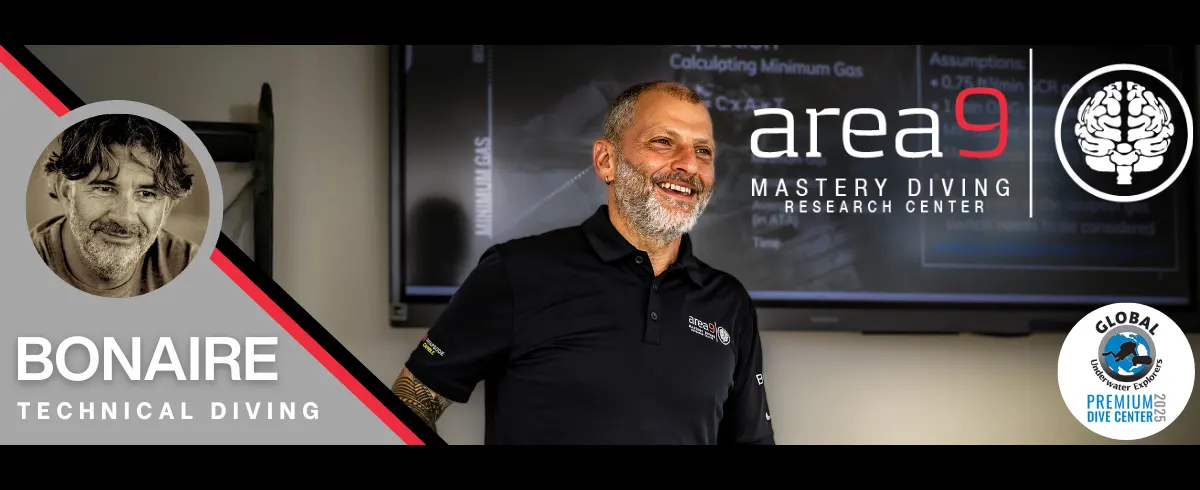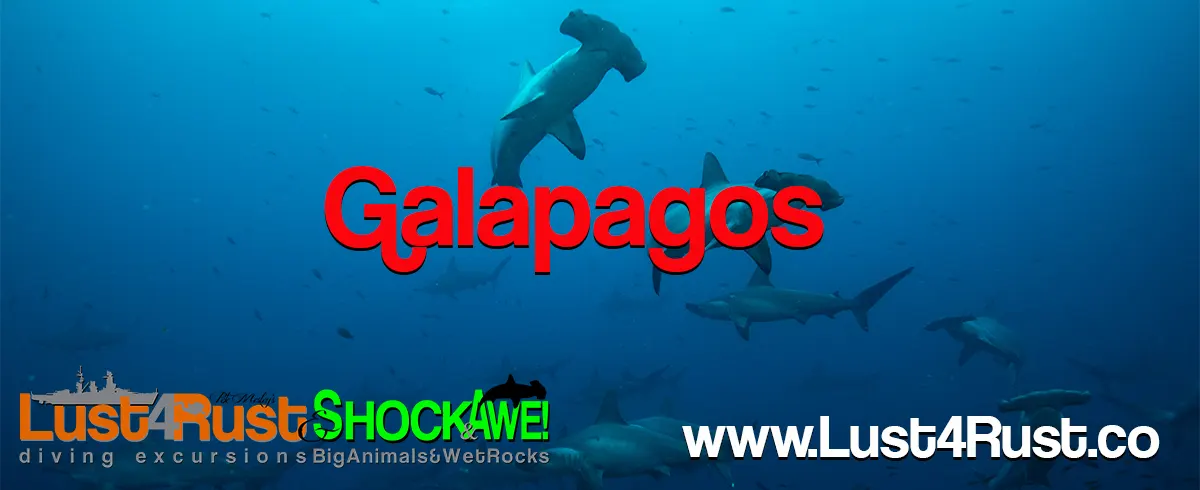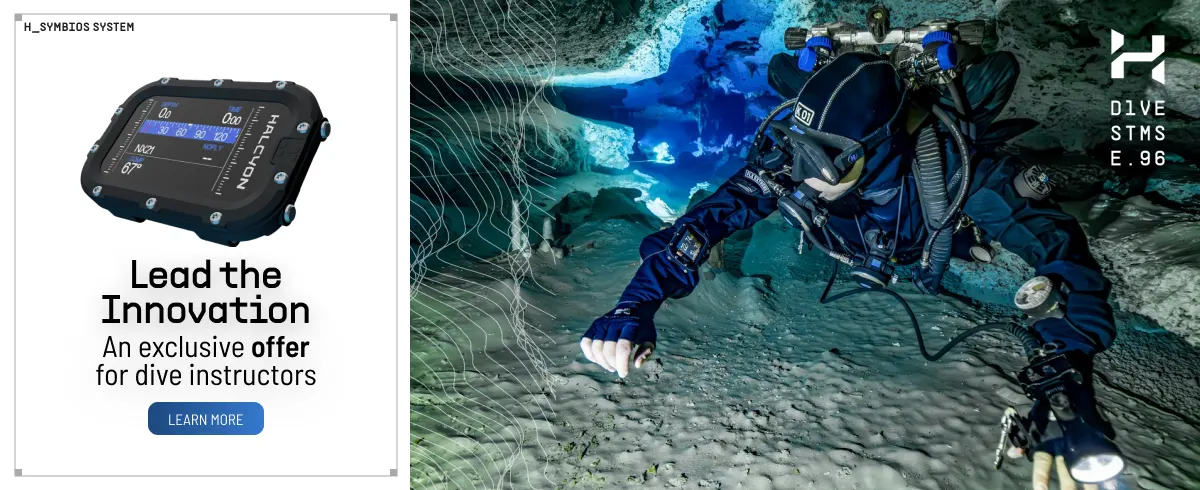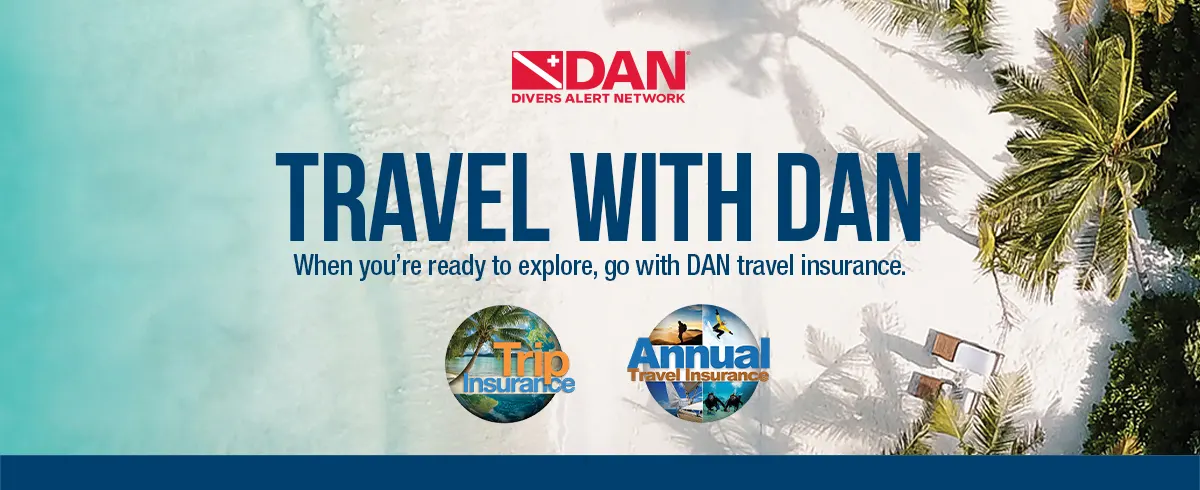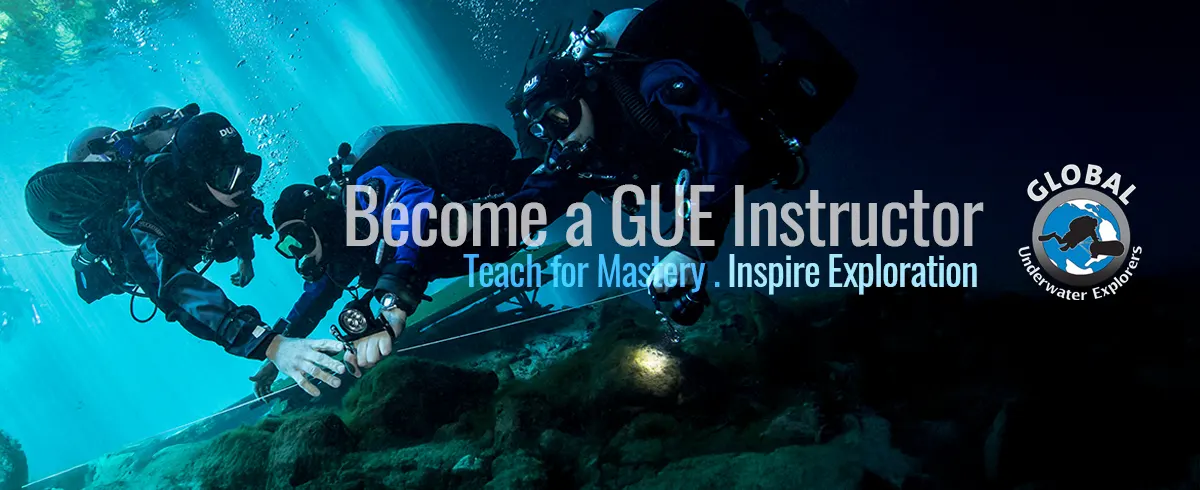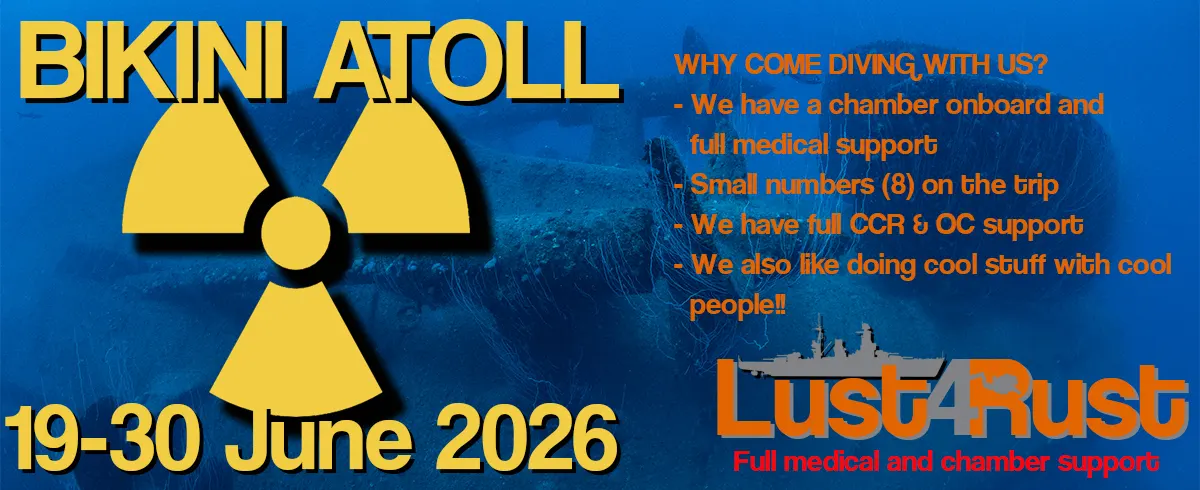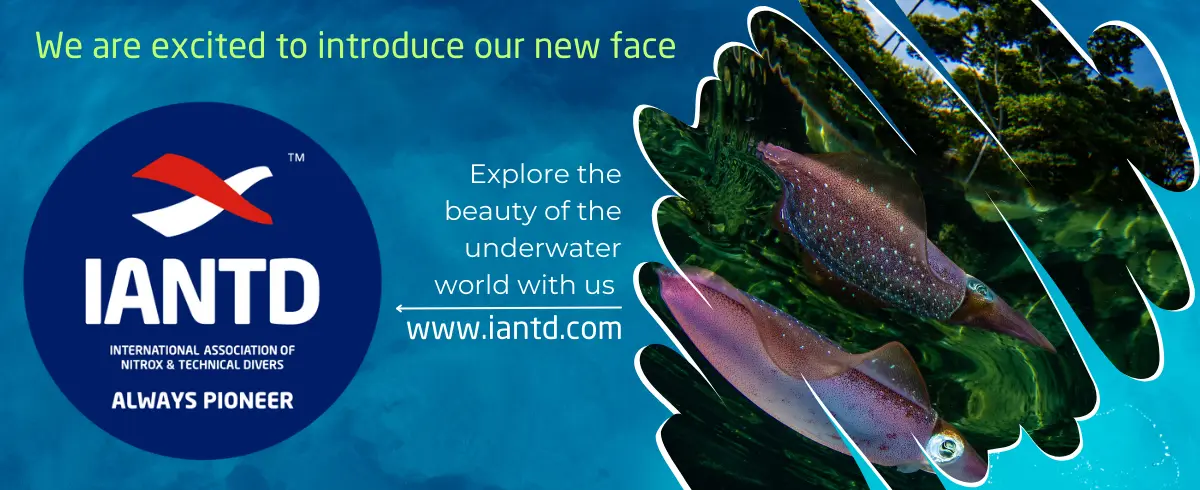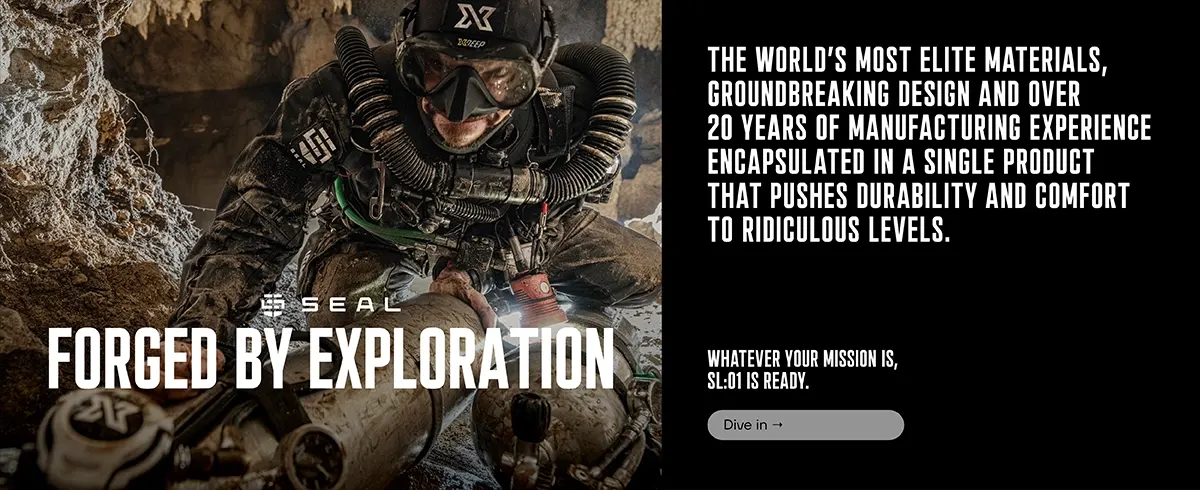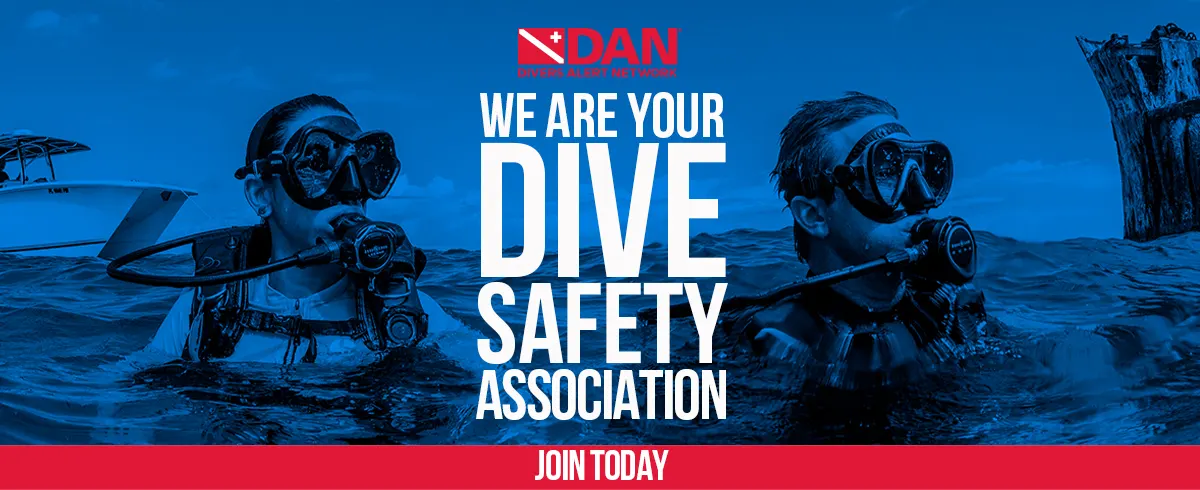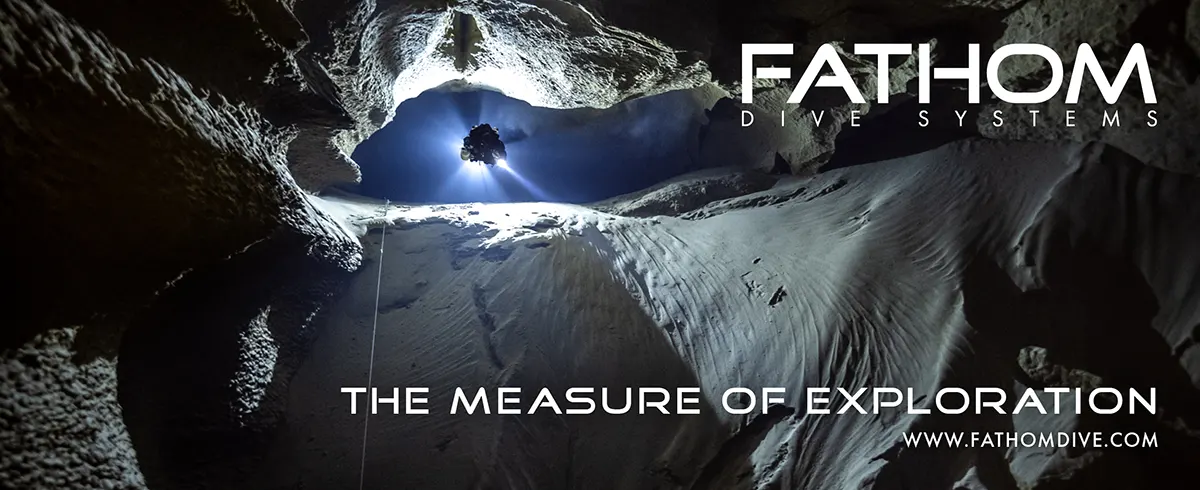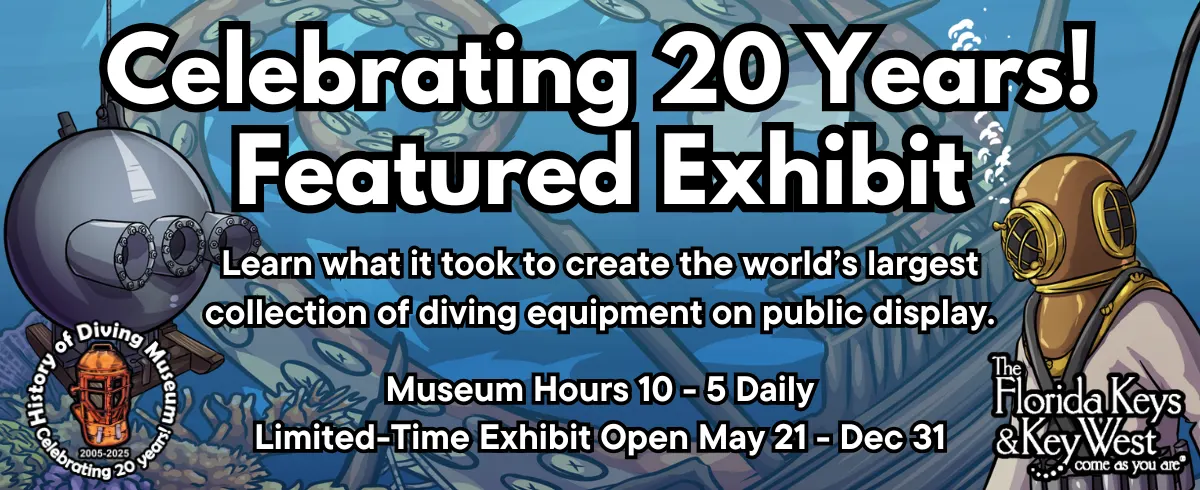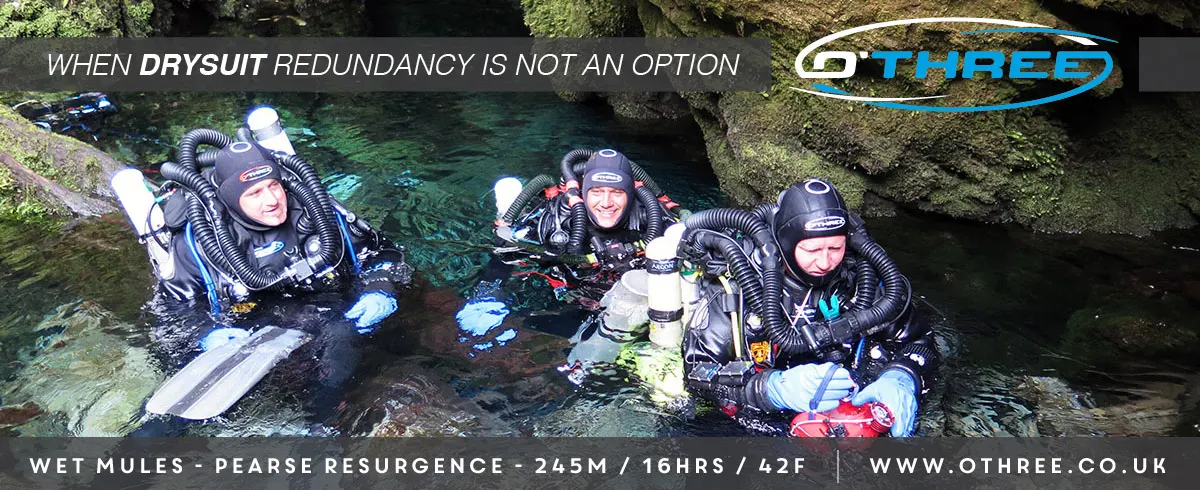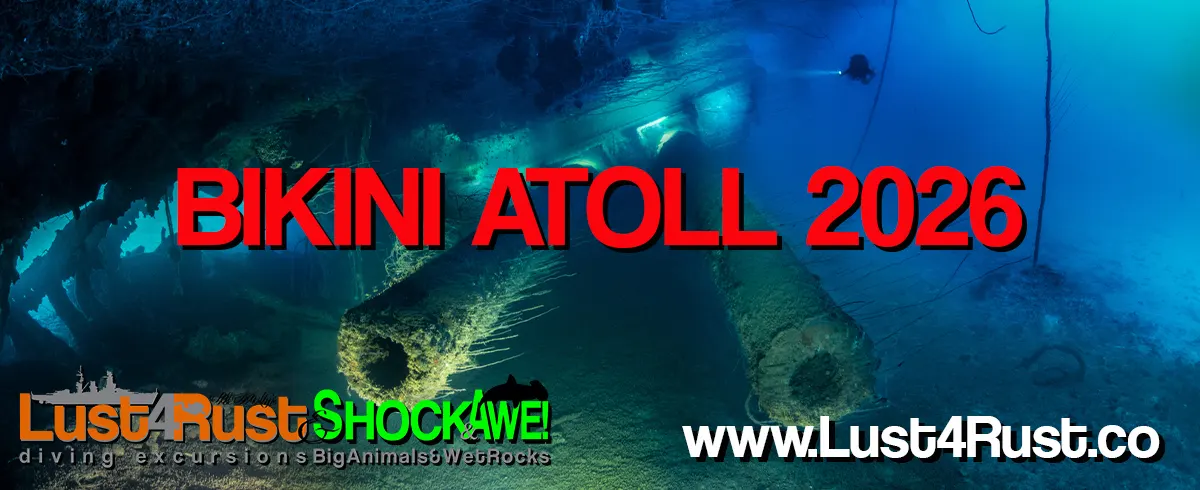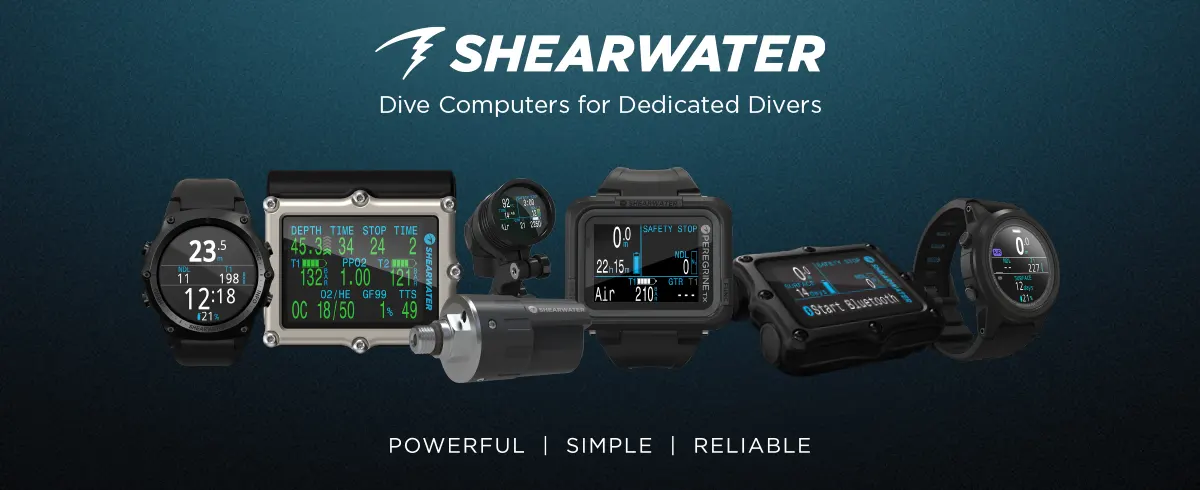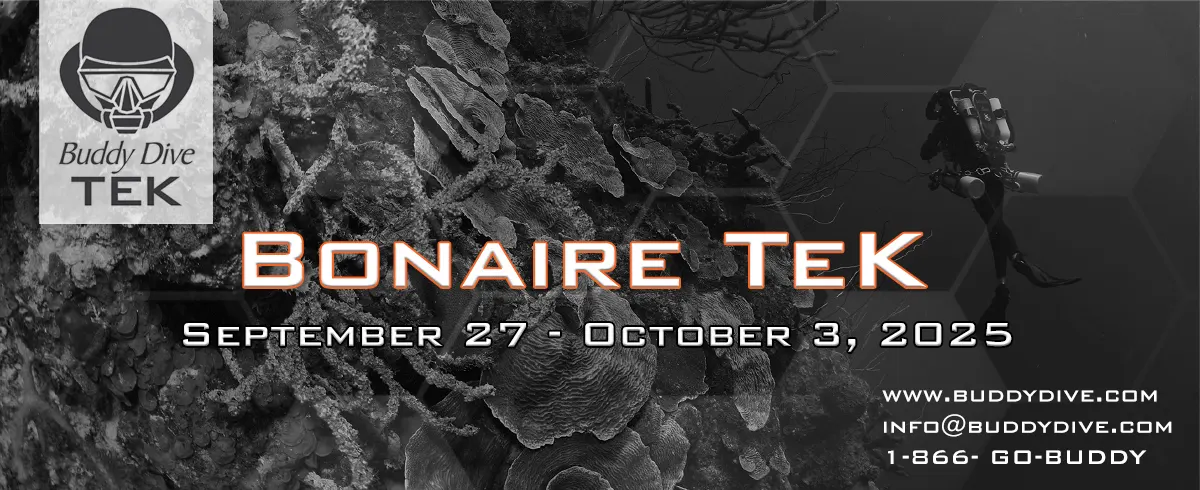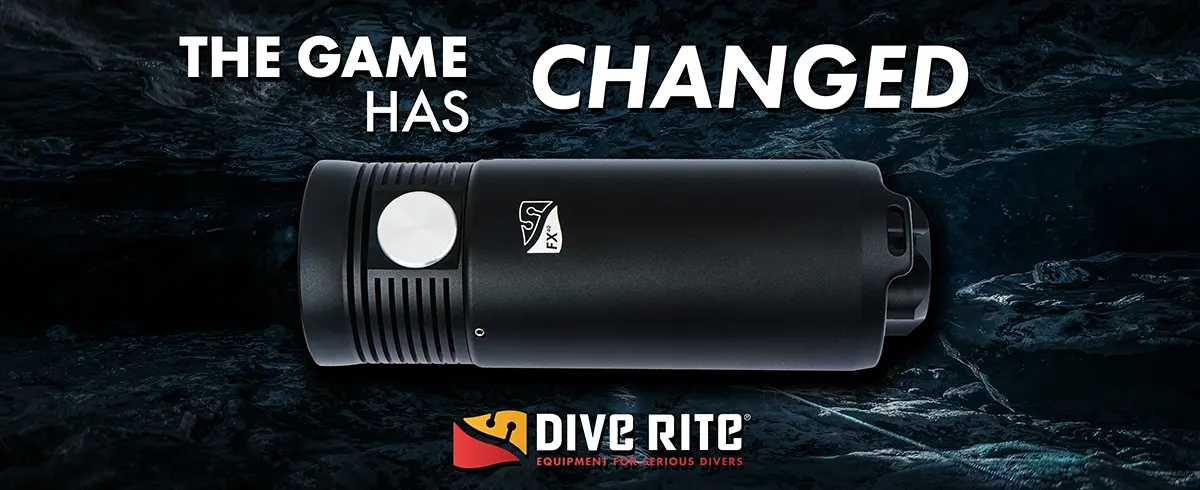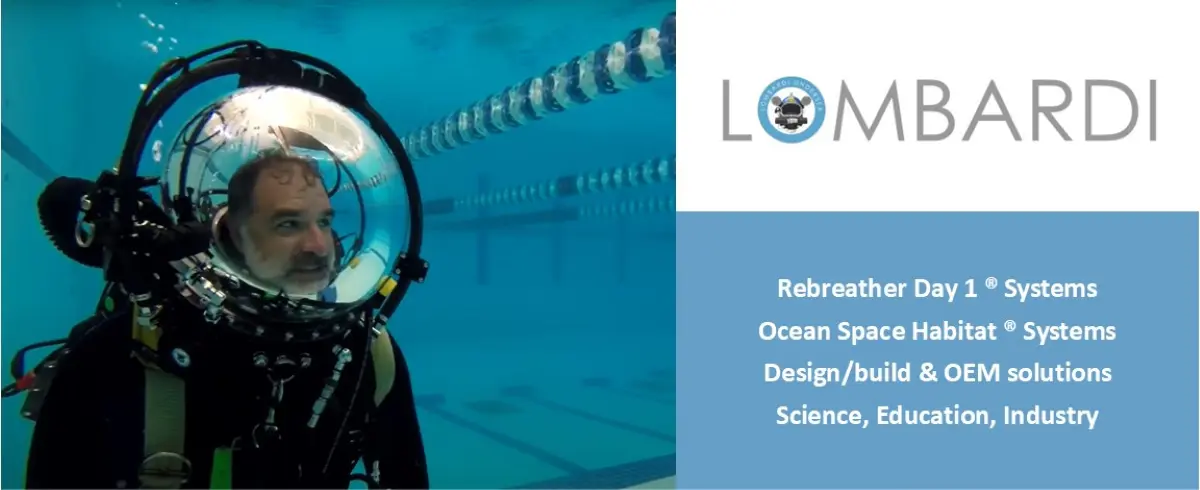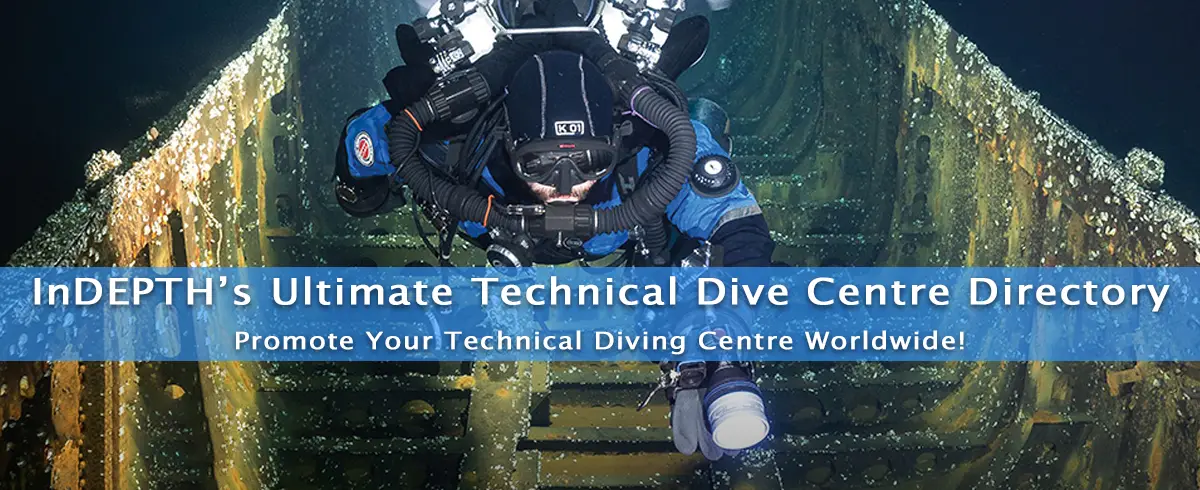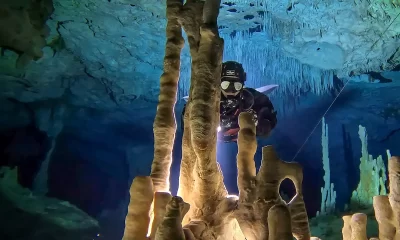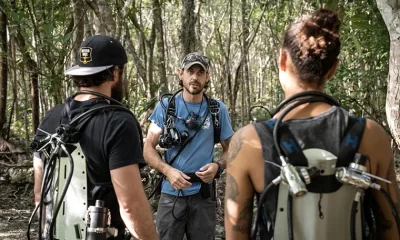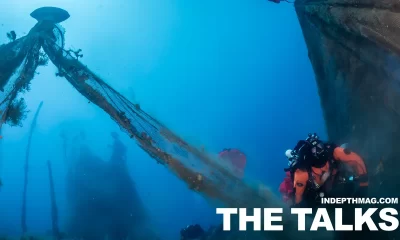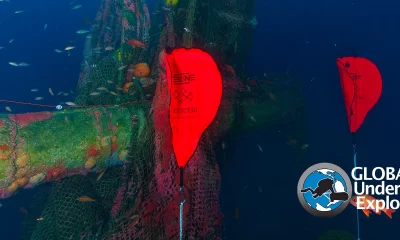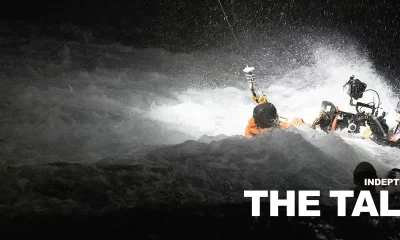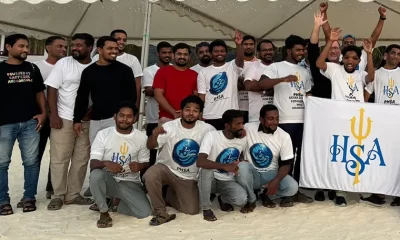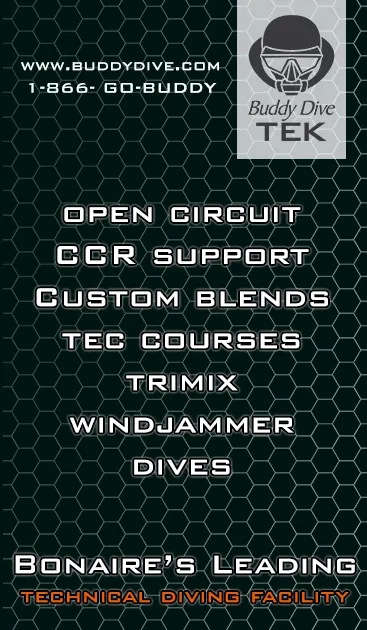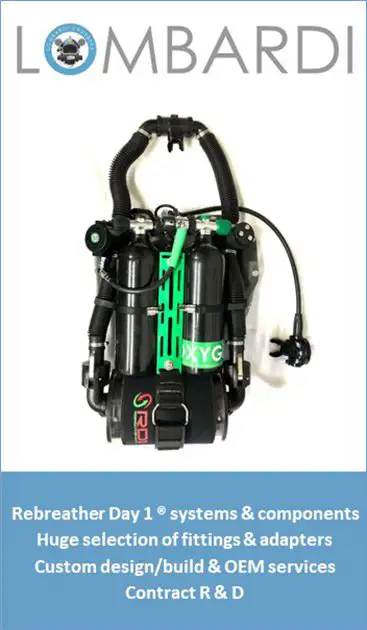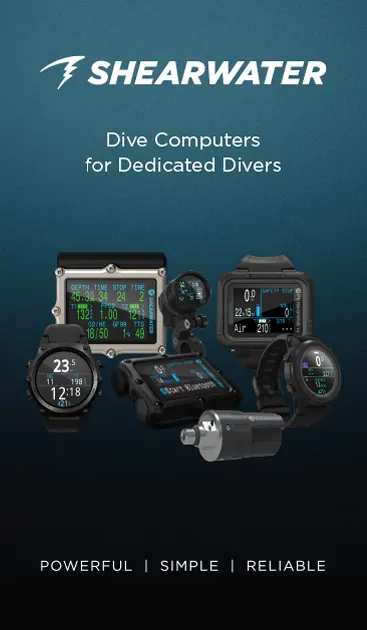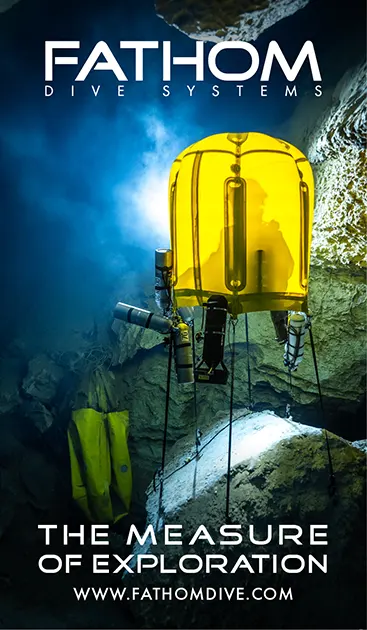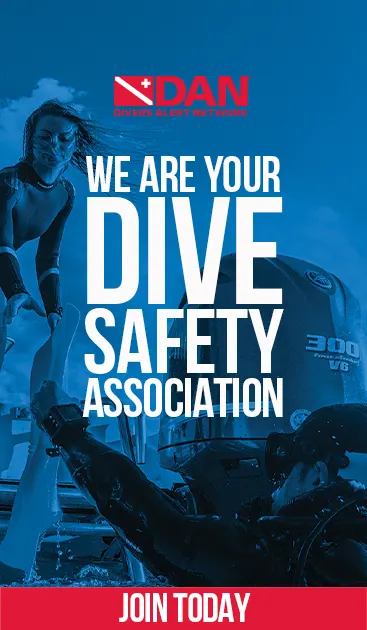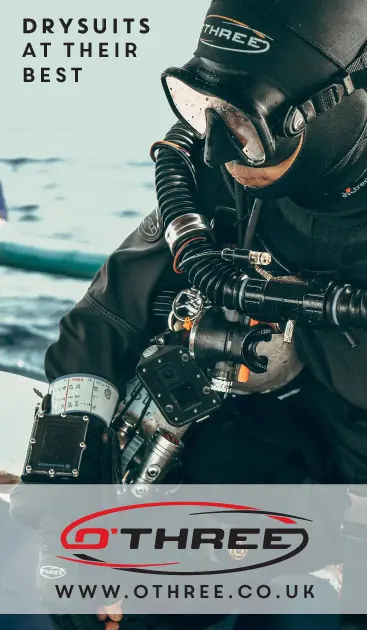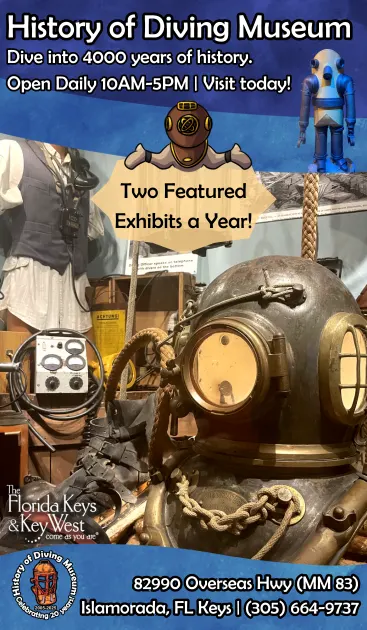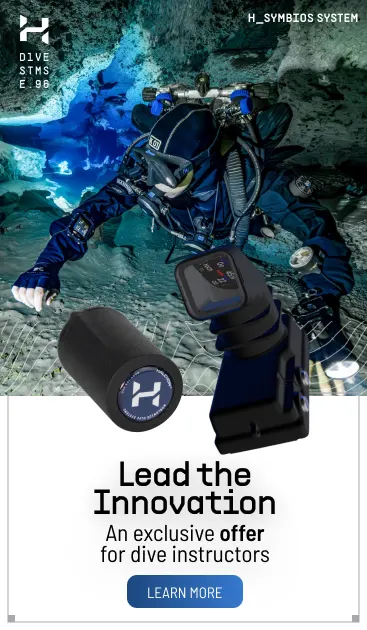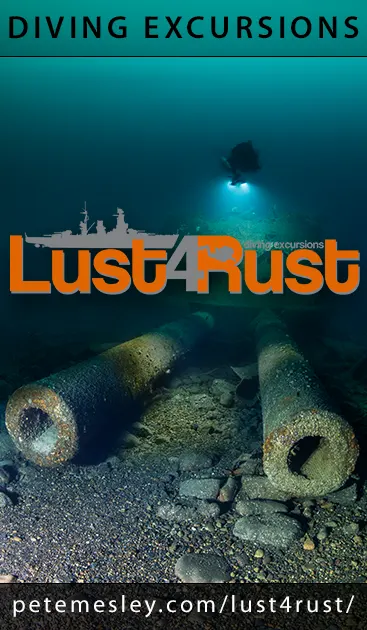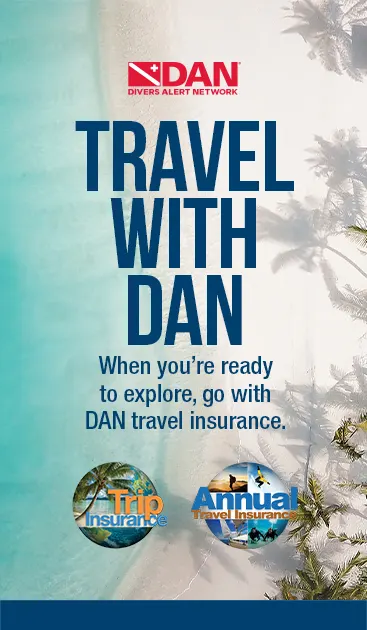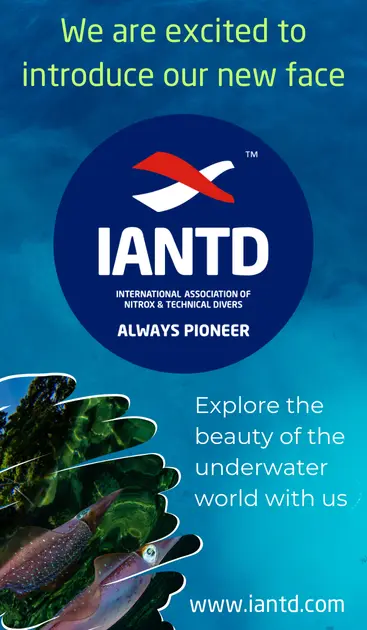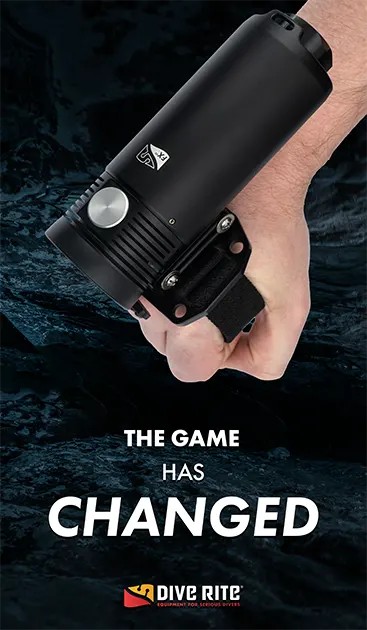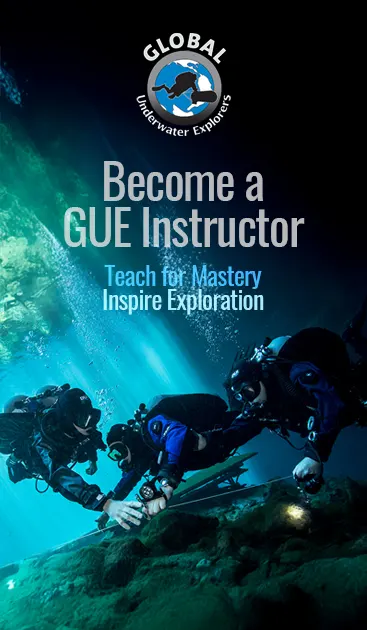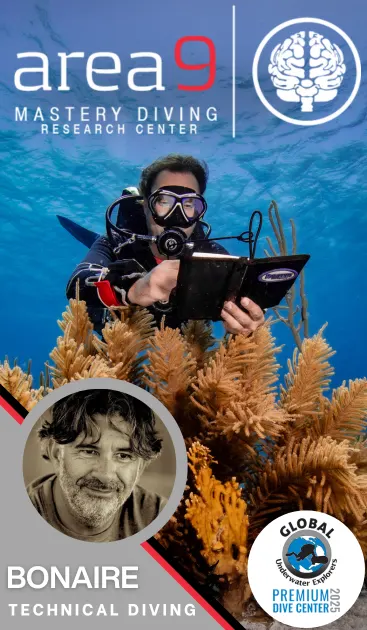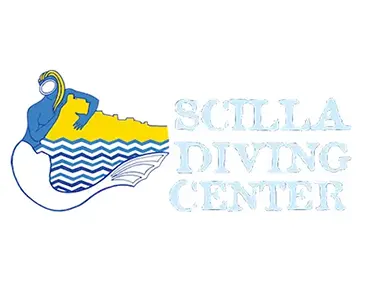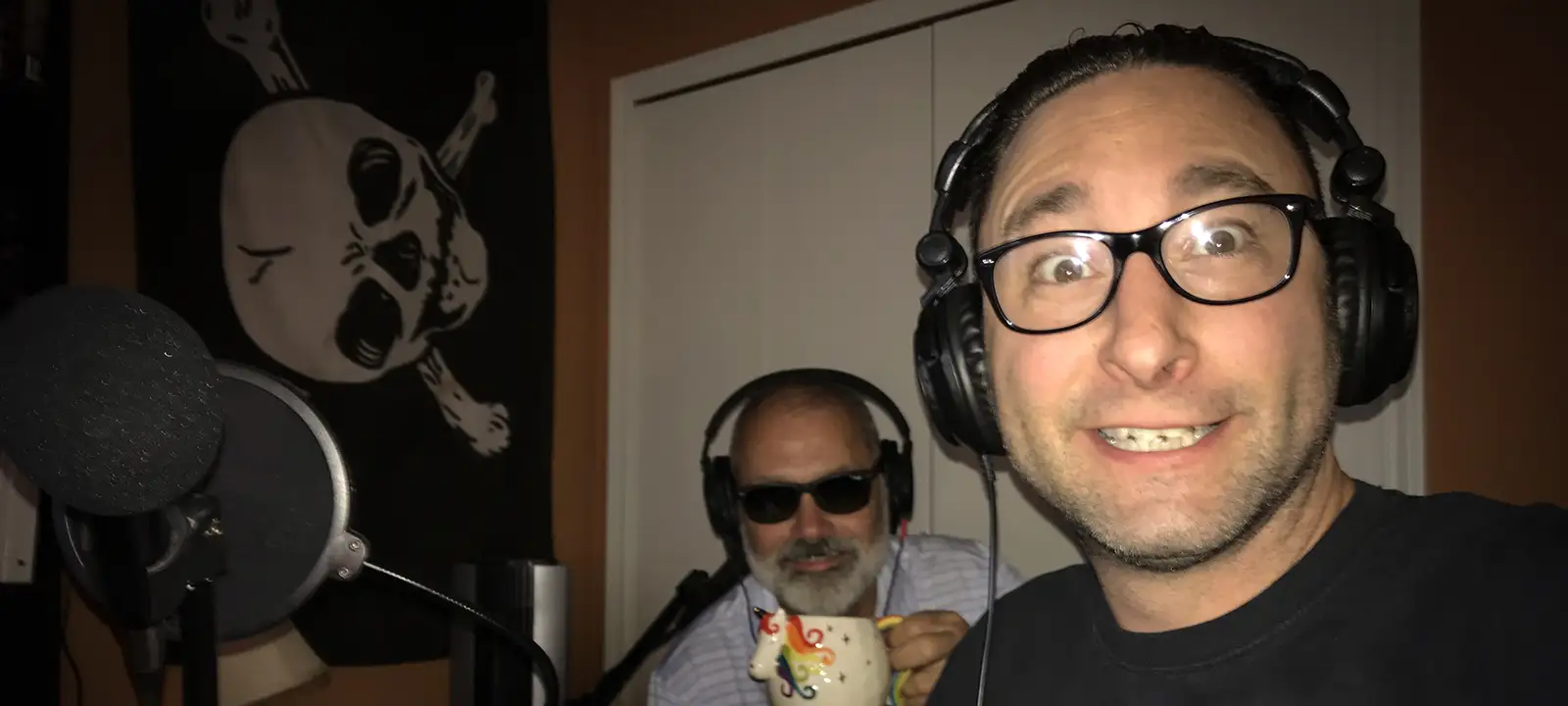
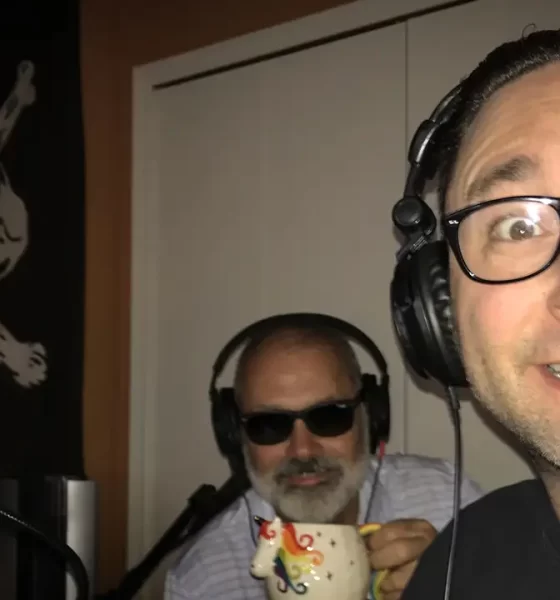
Community
THE TALKS: Leaders of the Pod
Welcome to THE TALKS—an immersive journey into the heart of tech diving that brings together inspiring figures in the community to share their insights, engage in spirited debates, and challenge conventional wisdom. In this episode, cave instructor and author Stratis Kas takes us for a dive into tech diving culture as seen through the eyes, and ears, of some of its most passionate and influential podcasters on this water planet. Listen up people!
Roundtable interviews by Stratis Kas. Images courtesy of the subjects unless noted. Lead image: James Mott and Brandon Schwartz of the Great Dive Podcast making sound.
🎶 Predive Clicklist: Leader of the Pack 🎶
Welcome to an extraordinary exploration of the scuba diving world through the perspectives of some of its most passionate and influential podcasters. In this discussion, we delve into the insights of the hosts behind four leading scuba diving podcasts: Steve Davis (Speaking Sidemount), Gus Gonzalez (Dive Talk), Nick Ramsay Hogle (Off-Gassing Scuba) and James Mott (The Great Dive Podcast) .
Each podcast offers a unique style and approach to engage listeners. From meticulous preparation and spontaneous conversation appealing to divers of all levels to a laid-back, conversational style akin to casual pub chats focusing on listener feedback, current events, and vintage scuba literature, these hosts bring authenticity and passion to their shows. They demonstrate that there’s no single formula for creating captivating content in the scuba diving community.
But it goes beyond entertainment—they inspire. Each host has not only shaped their podcasts but also fostered incredible communities. Their shows are a treasure trove of exhilarating and heartwarming stories capturing the essence of why scuba diving is such a beloved pastime.
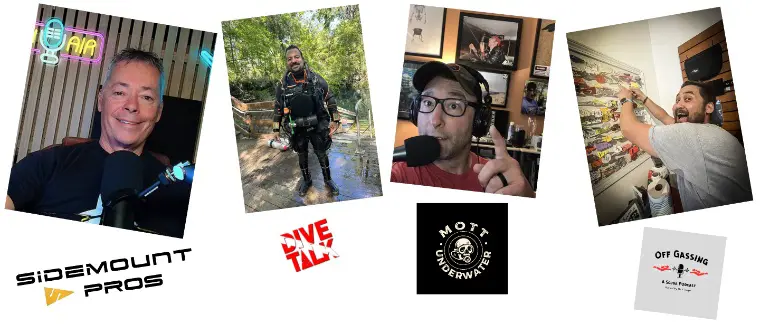
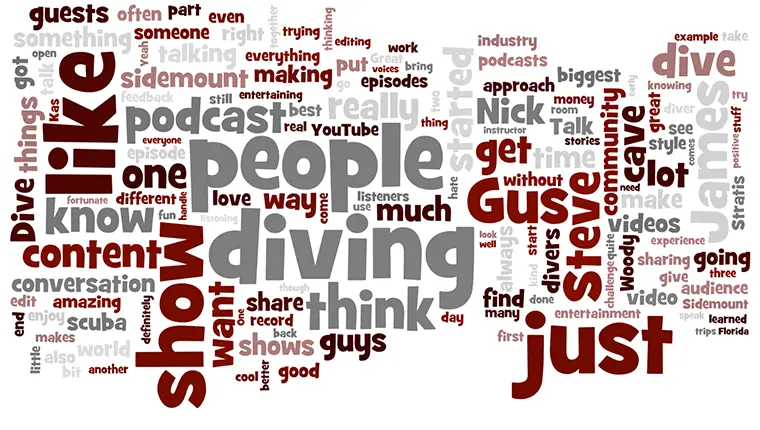
Stratis Kas: Hey folks, it’s great to have Gus, James, Nick, and Steve here with us today! We’re exploring their podcasting journeys and content creation styles. Let’s kick things off by hearing what sparked the idea for each of your shows and how your styles have grown over time.
Gus Gonzalez: I was mainly inspired by listening to James and Brandon’s Great Dive Podcast. While driving from Georgia to Florida to dive with Woody, my co-host on Dive Talk, I thought, “Because of my job, I already have all the equipment, so why don’t we just start talking about diving?” It felt like having someone in the car with us, sharing our conversations. That’s how it all began—as a podcast. We recorded about 13 or 14 episodes and then started making short YouTube videos to promote the podcast. These videos ended up getting way more views than our podcast. It became clear that people preferred seeing our faces over just listening to us. So, we decided to keep making videos alongside the podcast for a while. Eventually, we realized that videos were a better medium for us. On a podcast, it’s challenging to describe techniques or show something specific. In a video, we can visually demonstrate, highlight, and dissect topics more effectively. That’s how Dive Talk evolved from being audio-only to exclusively video.
James Mott: My start was quite organic, similar to Gus and Woody. After dive trips, Brandon and I would talk about diving, and one day at the pub, I suggested starting a podcast. He had no idea what a podcast was, but we started recording the next time we met. Our early shows were rough, but we’ve developed over the years. At one point, we considered doing YouTube videos, thinking people might want to see our faces, but we stuck with audio.
Seems like you both have different vibes for your shows. What is your ultimate mission behind creating and sustaining your content?
Gus: I think both of our shows have distinct missions. You and Brandon aim to change how people think about education and training, focusing on real-world effectiveness. Our mission is more entertainment-oriented, catering to our viewers—many of whom are non-divers. They watch to be entertained, to laugh, and to be scared. So, while our missions differ, both are valid and valuable.
James: If you’ve heard Brandon’s Arnold voice, you’ll know we prioritize entertainment too!
Nick Ramsay Hogle: When I started looking into podcasting, Dive Talk stood out as a major name in the field. Even when searching for diving content on YouTube or Google, Dive Talk frequently appeared. Your videos are undeniably entertaining. One aspect I admire and strive for is your community engagement. You excel at getting viewers to interact, something I struggle with.
Gus: Our community engagement comes from obsessing over our audience. We rarely record stuff that we want to record. We’d love to have deep conversations about technical diving and feature great divers on the show—we’ve had Ed, Brian, Mike Young, etc. However, the recommendations we get aren’t for videos about technical diving or how an oxygen sensor works. That’s what we want to talk about in our personal lives when we’re traveling. Instead, we focus on what our audience wants us to talk about and record that. In this business, you can either make videos you want to make and hope people want to watch, or you can make videos people want to watch that maybe you don’t want to make. We opted for talking about what people want to hear instead of what we want to talk about, and it just worked out. On our second channel, DiveTalk Plus, we post the stuff we want to talk about, even if not a lot of people want us to record it. We thought, let’s just start another channel and put the content we enjoy discussing there.
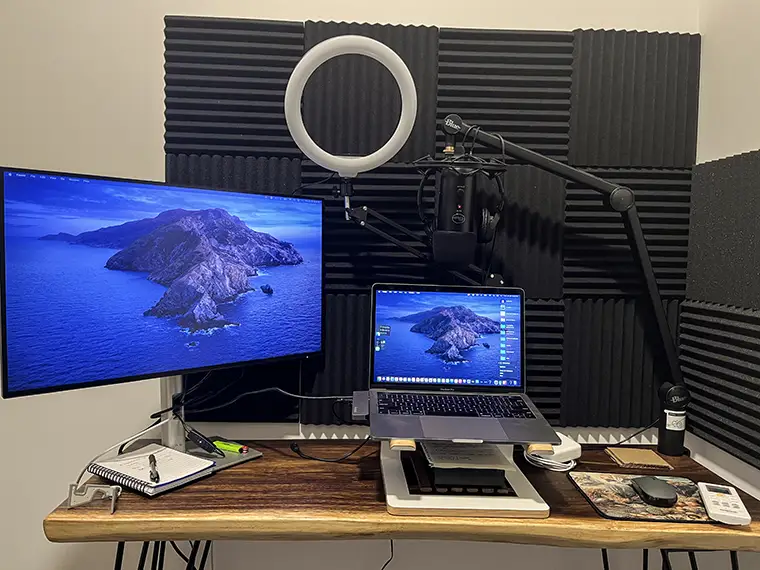
It sounds like you’ve really nailed down your audience’s interests to guide your content decisions. That strategy has clearly paid off for you. But every show has its own unique vibe. Steve, how do you make sure your educational content stays engaging for divers at all levels of experience?
Steve Davis: The sidemount genre drives everything. Beginners might find some episodes complicated, but I hope they capture the spirit of adventure and exploration, as I’m often talking to explorers. I’m trying to inspire new divers and provide interesting content for those who are midway through their journey or experienced explorers. Experienced listeners often enjoy hearing from their peers, as our community is relatively small globally. I don’t worry too much about covering everyone, as that might result in covering no one. Instead, I focus on having a variety of episodes. Honestly, a lot of it is driven by my own interests. I started the podcast for selfish reasons and developed an audience from there. I think about what would be interesting to me and who would be an intriguing guest. I do thorough research to understand their background and focus on their recent activities.
James: Yeah, I think Steve’s show is a lot different than ours. We don’t do many interviews. I don’t have the time to dedicate to researching guests. The few I’ve had were overwhelming because you need to know what they’re going to say to look professional, which Steve definitely does. When I want information on sidemount, his show is my go-to. I can pick through names I’m unfamiliar with and dive into those conversations to get perspectives you wouldn’t find in a textbook.
Nick: I’ll be honest, I’m terrible at researching guests. Sometimes, I’ve felt embarrassed for not knowing enough beforehand. I often approach my show like meeting someone at a dive site for the first time and just chatting organically. It works sometimes, and other times it doesn’t. I strive to improve and have taken a lot from your show, Steve. When I was first approached about doing a podcast, I hadn’t listened to any. I started with your show because I was getting into sidemount, and I binge-listened to the first two seasons! Your approach inspired me, and while I hope I’m not copying you too much, I incorporate many elements from your show into mine.
Gus: There’s nothing wrong with showing up to an interview without knowing the person. If your show’s style is like James mentioned—having a casual conversation like at a pub—you don’t have time to research. Sometimes, you meet someone at DEMA and start talking without prior knowledge. If your show takes that approach, go for it. I remember watching an interview with Chael Sonnen, a former UFC fighter known for taking last-minute fights. When asked why, he said it’s like a bar fight where you don’t have time to prepare; you fight right then. That approach can be entertaining. Showing up and asking, “So, what are you famous for?” can be engaging. Joe Rogan does this, knowing a bit about the topic but not everything, which makes it entertaining. Of course, we also need the super professionals like Charlie Rose, and that’s where Steve fits in.
Steve: I agree with you guys. When I say I do my homework, I mean I understand the basics of who I’m talking to, but it’s not 100% structured. Over the course of an hour, the conversation opens up, and I’m often surprised by what they say. My questions are designed to be open-ended, leading to follow-up questions. It’s not about being overly prepared, but about knowing who I’m talking to and letting the conversation flow from there.
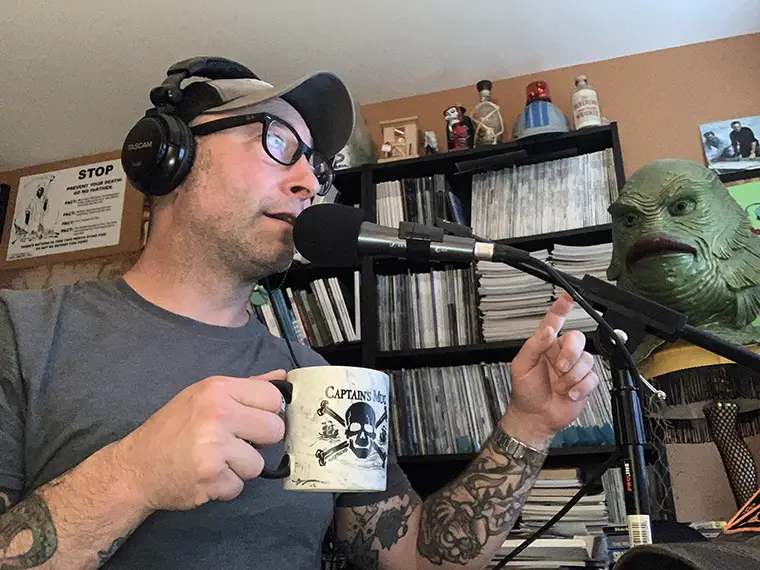
It sounds like each of you has found your place in the podcasting universe. Steve, your mix of prep and spontaneity hits the mark. James, it’s your turn. With your laid-back chat style, how do you pick topics for your show? Any standout episodes that really grabbed attention? What made them such hits?
James: Well, we pay attention to some of the feedback that comes through via emails. You know, the show is definitely for the listener; so when emails come in, or messages come in, or Facebook posts pop up, and recommendations come, we always try to answer those and move a show [episode] towards that. A lot of it is just current events, you know, things that are happening on the web and on different websites that I see, that I notice, that are interesting.
I’ve got a huge library of old scuba books and manuals and magazines and all kinds of stuff that if I’m really hard up, I just grab a stack of old magazines from the 80s or 90s or early 2000s and just start flipping through until I find something interesting that’s in some way still relevant to today. We try to bring it all back. From the way people used to learn to the way people learn today, and kind of compare and contrast those. Trying to give the listener some good, fun entertainment, crack some jokes, and make it like it would be if we were just really hanging out after a dive.
Nick: I think that’s actually awesome. It’s something I should definitely explore. I struggle with reading text; these days, I tend to just go online. But I really appreciate that approach. I enjoy it because, as you’re pointing out, there’s a bit of a gap—not in standards, but in training. Courses move quickly, and people often miss out on what they really should be learning. That’s why I find podcasts and YouTube videos so valuable—they provide the knowledge that should ideally be covered in courses. So yeah, I genuinely enjoy that approach.
Gus: As I mentioned earlier, I was listening to The Great Dive Podcast before we started Dive Talk, and one of my favorite things is when you guys get into characters and start doing voices, reacting like, “What would this conversation look like?” It’s reminiscent of what people do on YouTube. For example, if you’re watching a story about someone who drowned in a cave, the narrator might say, “They looked to their left and were horrified to see…” They don’t know what happened, but they add to it for entertainment, and I think you guys handle that well. Your series on deep diving was especially impressive. I’m a fan of longer series, like my favorite podcaster Dan Carlin of Hardcore History fame. He’s the GOAT, doing these massive 30-hour series on World War I. I love that kind of in-depth content, and your four-episode deep diving series really hit the mark. So yeah, I think being driven by audience feedback is crucial because it ensures you’re creating content they enjoy while having fun yourselves. You’re not just sticking to a topic; you’re embodying the characters, and that’s what I appreciate about your show.
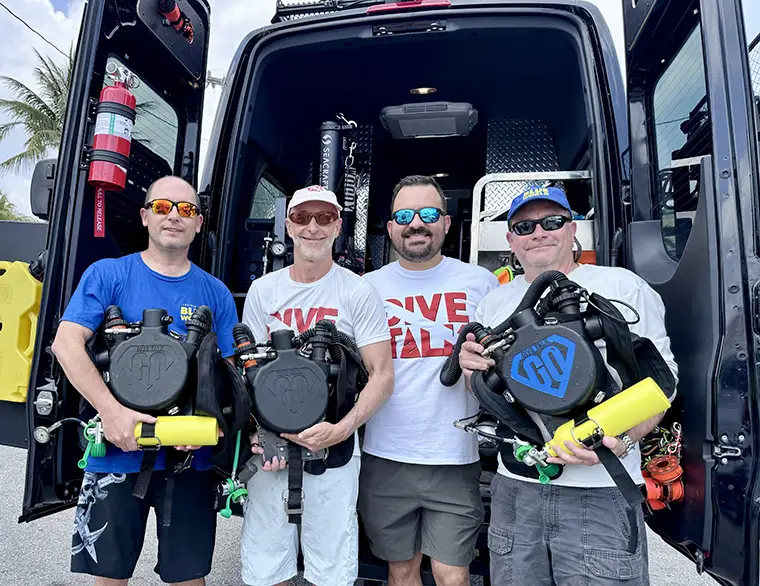
May 2024.
Steve: What I’m noticing from both James and Gus is the entertainment factor, and I really enjoy that. The back-and-forth banter, and although I haven’t seen it as much with James, I can see it clearly with Gus and Woody—you guys sometimes get annoyed with each other, and even that is entertaining. I think the dynamic of a two-person podcast—where you’re bouncing off each other, the voices, and the entertainment value of that—is awesome. I don’t have the luxury of a co-host myself. Occasionally, we share a few laughs and jokes, and I find that aspect just as enjoyable, if not more so, than anything else. Congratulations on that. I believe it’s a crucial and fascinating aspect of this medium—to ensure we’re both entertaining and engaging. I think the dynamic exchange between two people really nails that.
James: That’s really the essence of our show. It’s a bit of a good cop, bad cop setup. I handle most of the research, lay out the topic, and Brando’s free to go off script, rant, and ramble. Then, over the course of an hour, I try to rein him in and bring the show back full circle to where we started, making sure it all makes sense by the end.
Gus: It’s unscripted, right? You pick a topic, hit record, and just go with it, which is what I adore. I think that spontaneity adds to our show’s entertainment value. I never know what Woody will say, or where we’ll find common ground or differ. Yeah, you guys are genuine—just yourselves on camera. That’s fantastic.
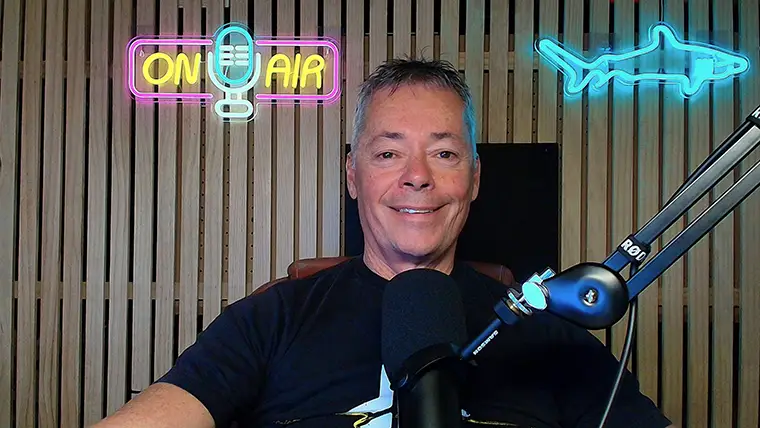
I love how you guys have found different ways to keep it relevant and real. Speaking of real, all of this has me thinking about your interaction with guests. Nick, how much interactivity do you typically have with your guests during episodes, and how much do you choose to participate as a host in the conversation? What factors influence your level of participation?
Nick: In an ideal world, on an ideal episode, you hear very little of me. If I end up talking a lot, it’s usually because I’m trying to engage the guest more deeply. For some guests, I aim to ask that one question that gets them to open up and share their story. It doesn’t always work out that way; some guests love to talk and tell their story without much prompting. Depending on where the conversation goes, I adjust my questions accordingly. Ideally, I want to play the role of the listener on the show. But it’s also a chance for me to connect with people I admire, like meeting my heroes.
Gus: It depends on the episode. We have had to pass on guests in the past because they wanted control over the content. You know, the kinds of guys that are like, “You know, I’ll be on the show, I’ll dive with you. But before you put the video out there, I need to see it and approve it because I can’t allow people to see if I have a moment where my trim wasn’t perfect or my tank was out of line or whatever.” We’re not about that. I don’t care who you are. We’re not giving up control of the content. One of the things fans appreciate about Dive Talk is our transparency. We openly say that we are not great. We have episodes about how we messed up and failed a class. People like that honesty. People connect with that honesty—it builds credibility and encourages our guests to be genuine too. When we shoot a video, we capture the dive exactly as it happens. No CGI to make things look flawless like James. It’s raw and real—whatever comes out is what goes up on Dive Talk. We only invite people who are cool with that.
Am I or are you the best divers ever? I honestly don’t know. I think it makes more sense to admit that we are still learning, and that’s okay. Not everything always looks perfect, but the most important thing is everyone’s safety. No one got hurt. So, why not just put it out there? And this ties into another important point, maybe a topic for another conversation: there’s this stigma around sharing accidents or incidents. There’s this idea that if you admit to having issues or problems, it makes you look bad and damages your credibility. Personally, if I’ve had an experience that I can share and help prevent others from facing the same situation, then I’m all for sharing it.
Steve: Stratis, now’s the perfect moment for a shout-out to Close Calls, right? If you haven’t got it yet, if it’s not on your shelf, you need to grab a copy. It’s an incredible book, and Stratis put it all together. So, go ahead and get it!
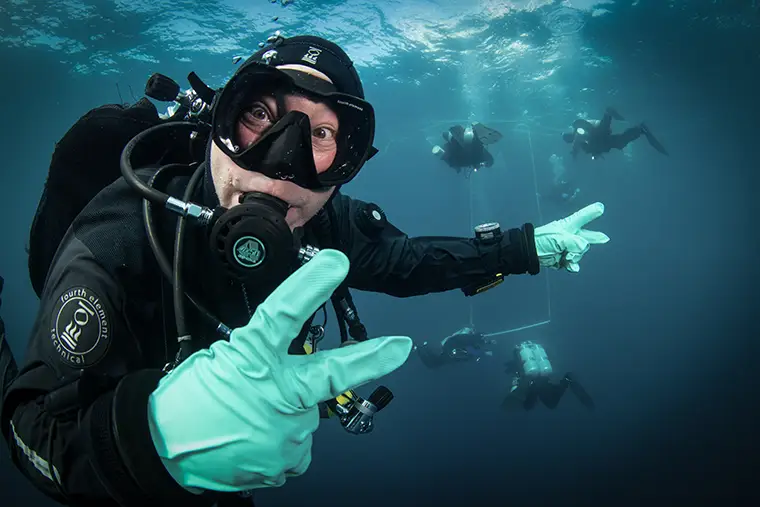
Thanks, Steve. Authenticity and transparency. Nick lets guests share their stories naturally, while Gus sticks to his guns on content control—mad respect! Now, I’m curious to hear James’s take on his dynamic during his podcast. How do you keep the conversation engaging and real?
James: We’ve had like three live interview guests—Stephanie Gandulla from NOAA, Gareth Locke, and Larry Green. With all of them, I came in with only a handful of questions, just to get the conversation started and let them do the talking and really try to jump in as little as possible, right on the same page as what Nick’s trying to do with his show. If you’re going to do an interview style show, it should be about the guest, not about you. When it goes rough, the only thing I can tell Nick is, edit. You can just chop all the boring parts out. Nobody knows you had that three minutes of awkward difficulty in the conversation.
Nick: Thanks James. I have a question for the group. I’m just curious, you put yourself out there, you start a channel, a podcast; it’s inevitable that the negative feedback is going to come, right? How do you all handle that? How do you handle the negativity that comes your way?
Steve: That’s an excellent question. When I started in 2018, part of the drive for this was the amount of negativity that there was in all of the Facebook groups. There were people just laying into each other over the most trivial aspects of sidemount diving. It was just insane. That was part of why I started the podcast. My expectation was that I was going to be hammered. One day somebody said “Hey, Steve, you talk too much.” I think that’s a fair criticism because, contrary to what you guys were saying before, when I’m interviewing my guests, quite often they’ll say something and I’ll go, “Yeah, that reminds me of when I got started in that same situation. And here’s my little story about that.” I am shocked that, to this day, I have had very little trolling or negative feedback. Just genuine criticism about sound quality in the early days, which to be honest was correct. In fact, it’s quite the converse: I get a lot of positive feedback and it may be a function of my audience again. Or it may be that I wanted to really put the lid on all this negativity around sidemount diving. I did a video the other week too: the “trim police”. I was diving with my buddy, and I came up with a red and blue flashing light and gave him a fine! Just making a bit of fun I think also helps. I’ve been quite lucky as I don’t have a broad audience. I think if my audience were broader, maybe I’d get more people trying to have a crack, but I’ve been quite fortunate.
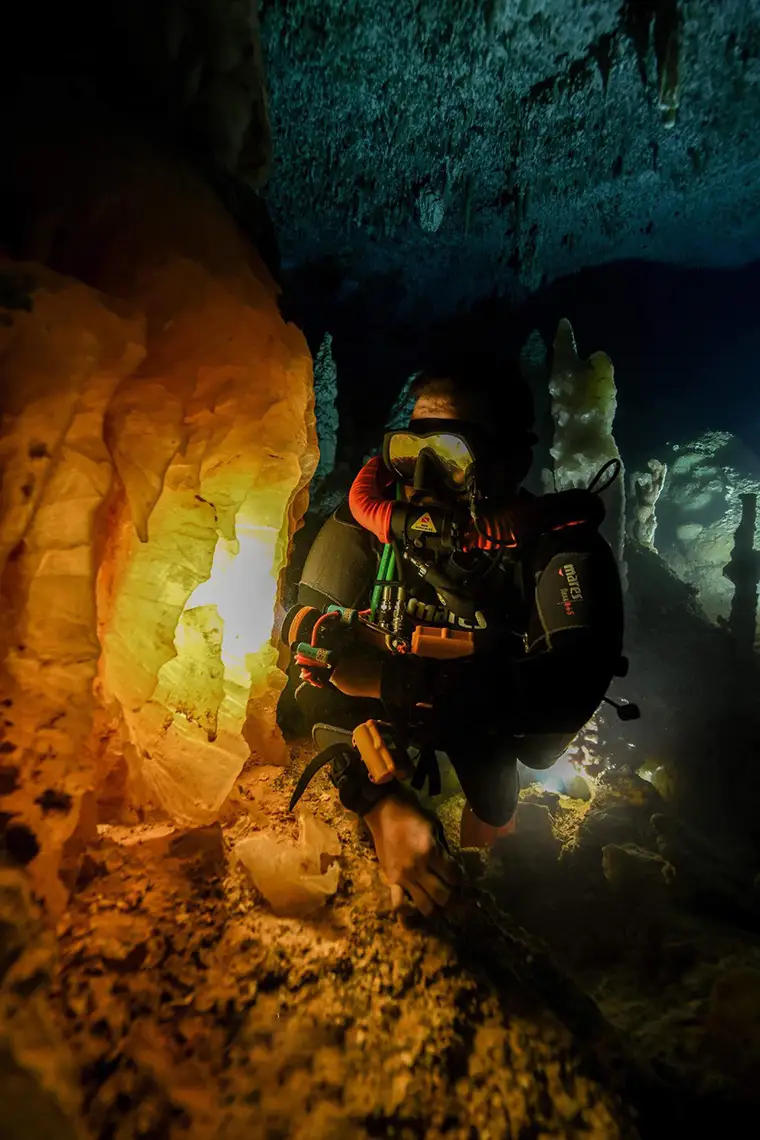
Gus: You should have me on the show if you want to experience the hate for a day. To answer the question: I think for me, I realized that everyone gets hate. The biggest channels—whoever the expert is, it doesn’t matter. Everyone will have haters, right? So that’s number one. I think that Woody has a little bit of a tougher time dealing with that. I think he takes it too seriously when somebody says, “You’re a complete idiot because what I would have done is X,” right? My standard answer for that is, “Because you’re a better diver than me.” It’s that simple.
We know that we don’t have a lot of fans in the cave diving community. The cave country community is not a huge fan of Dive Talk. We know that. Most people that are giving you hate are not people that are more successful than you. The people that give you hate are typically people who are jealous of your success. They are like, “How come they get to speak for cave diving globally?” We don’t speak for cave diving globally; we speak for ourselves. Now you can say that because we’re the largest channel that focuses on cave diving, that most people are watching us and think that we speak for cave divers around the world or that we pretend to be the best. No, we don’t. We openly say we’re not. We have featured people on Dive Talk that have four subscribers, and then we get the hate that, “Oh, you guys are just exploiting the smaller channels.” But then, if we feature somebody with 20 million subscribers, then it’s, “Oh, you’re just using their clout to get subscribers.” There’s always going to be hate and you just ignore it for the most part.
James: You can’t win if you play that game there, Nick. You know, embrace the negative comments, address them. I mean, some of them might be worthwhile. You know, “You got to fix your sound quality,” or, you know, “Stop doing this, do more of this.” And then it helps you steer the show. But if somebody doesn’t like something about you or doesn’t like something about your show, all you can really do is say, “Thanks for giving me a shot.” I’m like, “Hey, you know, sorry, we’re not for you. There’s a lot of great shows out there. Go out and find one that better suits you. Sorry, we’re not the one”.
Gus: I love that you guys say don’t give us any four-star or three-star reviews!
James: Give us one! Give me one or give me five, but don’t give me any of that three or four BS.
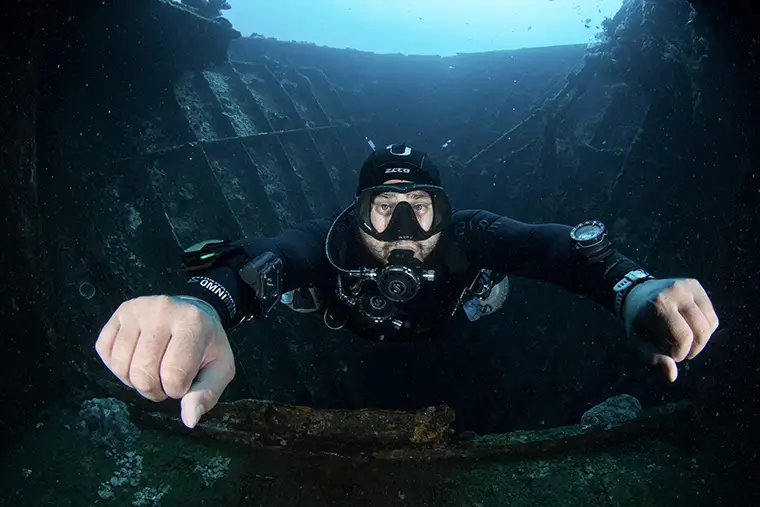
So, it sounds like dealing with haters is just part of the gig, and the best way to handle it is to take it in stride and not get too worked up. Gus, what would you say are the biggest challenges you face when producing your show? Things you wish you could do in the future to improve?
Gus: For Dive Talk specifically, I think the biggest challenge is that we have two people on the show. Woody is a very successful businessman who travels a lot for work, so it’s hard for us to find time to sit down in the same room and record. A lot of people don’t think that we’re in the same room, but we have a little studio here in my house, and that’s where we record. We’ve tried to do it remotely. There was a time when he lived in South Florida for like two months or something, and we tried to do it remotely. But we actually opted for him flying for a day, recording, and flying back to South Florida because the quality of the content is much better when we’re together in the same room. The interactions that we have together, the quickness to pause the video and comment and unpause and whatnot—that, to us, has proven to be the biggest challenge. In terms of things that I wish I could do in the future, I think having someone dedicated to recording us when we are on a trip would be amazing. I wish I could afford that. I’m always jealous when I work with Jonathan Bird of Blue World, for example, and he shows up with a full-time cameraman.
Our videos that we make when we go on trips, even though they’re pretty epic trips and great dives, are not filmed well or even at all. Especially cave exploration trips—when in Mexico and laying line in a virgin cave, the last thing I’m thinking is, “Where’s the camera? Is the lighting right?” or whatever. I’m looking for leads. My brain is so focused on doing something else. So having a dedicated person filming would be amazing.
Jonathan’s program is amazing, and obviously, it started as a full professional production from the beginning. It’s a completely different story. What’s amazing about him is that he’s just a passionate diver like everybody else. And it shows.
Gus: The biggest thing about him is that he just wants to have fun, you know, like us. He’s always saying things like, “Every time we dive, we should end the video with the mask on our forehead just to piss people off on purpose,” because people from the scuba police will be like, “That only happens if you’re in distress!” He just likes to have fun, just like us. He makes entertaining videos, just like us, but obviously at a much higher level—the stuff he makes is breathtaking.
Steve: I’m in New Zealand; most guys are on the other side of the world. So managing time zones is a big challenge. All other things have been technical. New technologies, microphones, cameras, recording, editing. About that, you guys were talking before about how you don’t edit much. I used to edit every single “umm” out. The reason that I did that, and I still do, is that I like the final result that comes out after this editing. I remember, and I use as an example, Steve Bogaerts—I hope he doesn’t mind. Steve’s a big “ummer.” Every single sentence would have an “umm” in it. So I edited them out and Steve sounded so eloquent, it was really cool. My objective is to make my guests sound amazing. Non-English native guests and accents is another one. Stratis, when you were on my show, for example—I am sure you won’t mind—I know you speak four languages. I’m a great admirer, especially of the Europeans and the Asians who come on my show and English is not their first language. Sometimes, you have to edit out a lot in terms of hesitating and pausing. I’ve just kind of started backing that off a bit, only because the editing time commitment is massive, and it became an impediment to me producing the show. I’ve started using automated tools and AI for it. My biggest challenge is making everything at the production standard that I want to deliver.
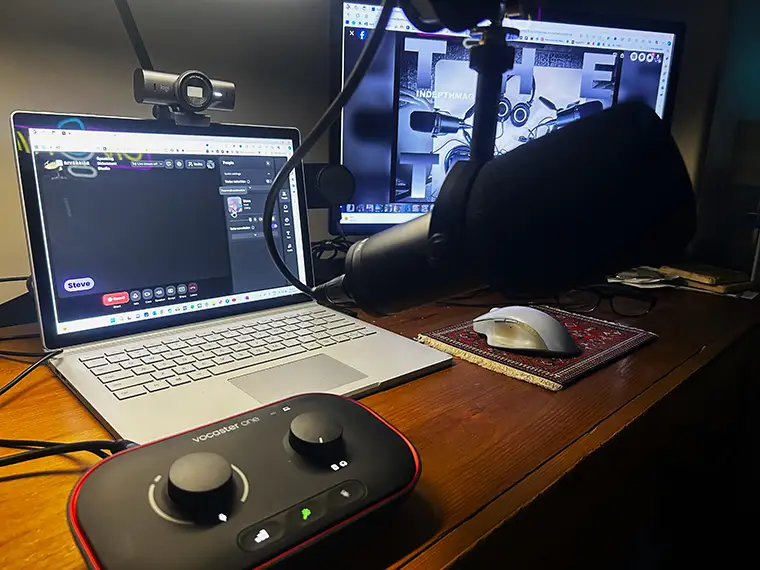
Gus: I think you guys on the Great Dive podcast made a good decision by stopping the bleeping. I assume that took forever to edit every episode!
James: Yeah, it was a total pain in the ass, you know, but we came into it. There’s a lot of YouTube shows that are really professionally done. We’re kind of like the garage rock or punk rock podcast compared to a lot of these. We weren’t sure what the rules were with Apple and swearing, for example! We had no clue. We also overbought electronics early on—equalizers, mixing board—but now we’ve scaled it down to nothing. We’ve got a microphone and a recorder; that’s it. We still do a lot of cleanup editing because we essentially sit down for a couple of hours and we just have a conversation. There’s, you know, a coffee run or a bathroom break in there that nobody hears in the end result. Edit; nobody wants to sit and listen to you trying to put your words together.
Gus: That’s what we originally thought of the P fog commercial for—throw that in!
Nick: I completely agree with editing the “umms,” because I still do that. My biggest challenge is not that: it’s when the guest’s internet is not “cooperating.” I will have to cut in and out, but sometimes it does get a little bit overwhelming. Another thing I’ve been dealing with is the noise bleed of the mics. I just got back from Mexico, where I was able to record with a bunch of people in person. I like the dynamic better, sitting in the same room with the guest. But I do find it easier when we have separate tracks recorded.
Gus: I like setting things up properly. Right now, you guys can hear me well. There’s no echo because the studio has been set up for that. We have it set up in a way that you don’t have that mic bleed, and it’s all single track. We have no dual tracks for the show. Editing wise, I’ve had people asking, “How do you edit these video reactions?” And I was like, “Dude, let’s just do a Zoom call. I’ll share my screen. I’ll show you exactly how I edit an episode.” And then 10 minutes later, we’re done! So that’s it. We edited a one-hour episode in 10 minutes. I just cut the beginning and the end, put a fade at the beginning, fade to black, and subscribe here and there. That’s it, 10 minutes. I don’t cut; I don’t edit the “umms” or whatever. We are lucky, though, because Woody had a radio show about finance before, and he learned how to avoid “umming.” And I was doing podcasts for like two or three years before Dive Talk, which really helped me get over that as well.
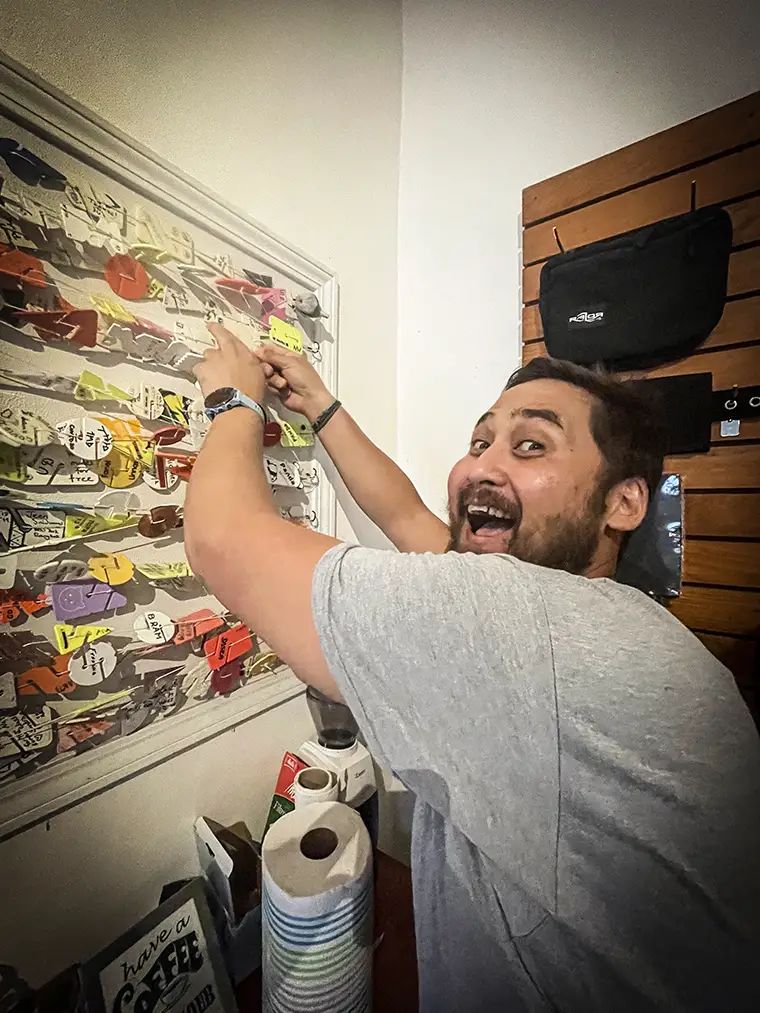
Time zones, tech issues, and endless editing can be a real pain. Editing can take forever. Props to you all for making it work! Now, let’s flip it: In what ways do you think your podcast has influenced diving practices and community interactions within the broader diving community?
Steve: Good one. If you asked about my mission, it’s all about education. I want to get the biggest voices out there and provide info to people hungry for it. The best part is when someone messages me saying, “Hey, I heard your podcast, and it made me jump into sidemount or cave diving.” It happens pretty often! Motivating someone to take that leap is super cool. There’s a lot of keyboard divers out there, always commenting on trim and whatnot. I wanted to cut through that noise by getting the best voices heard. If you want to know about trim, listen to Steve Boegards, Patrick Widman, Tom Steiner, or Stratis Kas. I’m a good sidemount diver and a decent cave diver, but I’m not an explorer and don’t dive as often as these guys. I’m usually the weakest diver in the room, but that doesn’t mean I can’t interact with them and share my own experiences. I aim to get those voices out there to inspire and motivate.
James: I’m not a sidemount diver, but I’ve read tons of books on it and visited plenty of websites and Facebook groups. Honestly, though, I’ve learned more from listening to your show. You give a real-world, honest approach that textbooks just can’t match. The beauty of your show is hearing from people who learned one way and then evolved their game. That’s the kind of stuff you’ll never find in a textbook chapter.
Gus: One of the things I love is the approach of “This is how I do it, but it doesn’t mean it’s the best or only way.” It’s not like, “If you do it differently, you’re an idiot.” It’s more like, “This is how I do this one thing, and let me tell you why.” You can take whatever lesson you want from that. My diving style is a mix of everything I’ve learned from everyone I’ve dived with. I’ve seen how they do things and thought, “Oh, that looks cool, but I bet if I do it this way, it’ll be even better for me.”
Steve: When I started out, I was all about “Hey, I’ve been trained the best way.” But then I got Jill Heineth on, and she dives Florida style, which is totally different. Is there a more amazing diver in the world than Jill Heineth? Maybe, but probably not. Then I had Toddy on with his style of sidemount. Oh my god, it’s also different! Then I trained with Ed, who dives his Florida style with his first stages out. To his credit, he was cool with me having mine in once I got in the water and showed him I could dive that way. There are lots of ways to slice the pie. I’ve learned to let people dive the way they want to, as long as they have a good reason for it and it’s not unsafe.
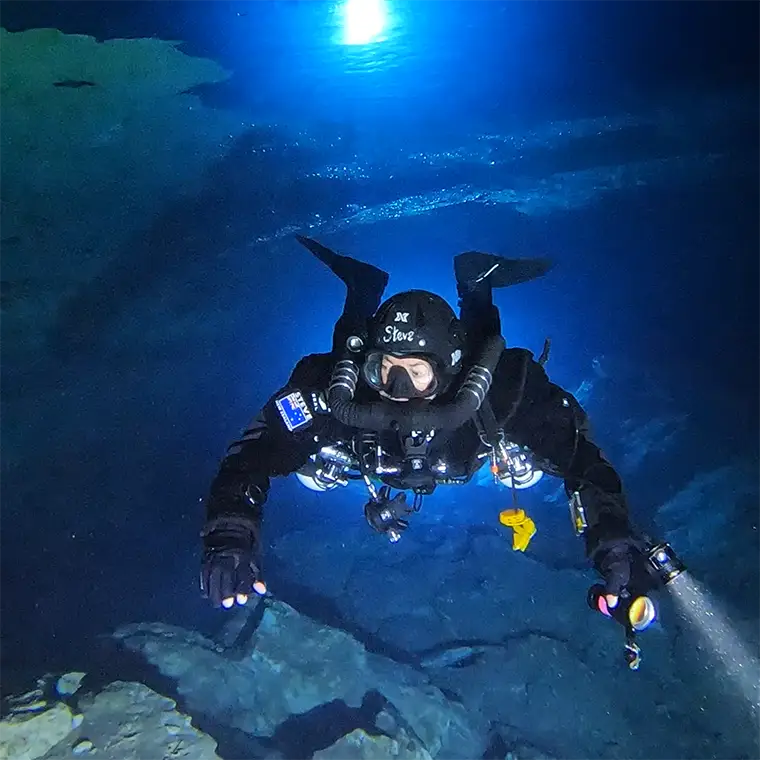
We all agree that diving podcasts bring some killer insights. They dish out diverse views, real-world stories, and personal tales that really inspire and push divers to up their game. On another note, James, do you think there are enough diving podcasts out there or not? And is there any real money in dive podcasting, or is it more of a passion project?
James: I can’t wait for Gus’s answer on that! We’re still trying to figure out how to make a fortune—it hasn’t happened yet. We’ve picked up a sponsor, Manscaped, which helps pay the bills, but we’re not rolling in cash. It just stops us from hemorrhaging money to do the show because, realistically, it costs money and time. Recording, prep, production—it all adds up.
We could definitely use more scuba diving podcasts. There are so many people with unique visions and perspectives on diving.
Nick: I do research like, “What’s a good scuba diving podcast? What are they talking about?” and I always think we could use more. There are a lot of content creators out there, and I really applaud them. It’s an art I don’t possess—like, a one-minute Reel takes me two hours over three days. I love hearing everybody’s voice in the scuba world, so if you’re thinking about starting one, please do! Reach out—I don’t know how great my advice would be, but I’ll help however I can. As for making a fortune, I’m still waiting for that call from National Geographic to fly me around the world to amazing dive sites. Sure, the idea of money and fame is nice, but at the end of the day, I just love talking about diving. It’s something I’d do whether I was paid or not. But hey, if someone wants to pay me, I won’t stop them—look me up!
Gus: When Woody and I started Dive Talk, it definitely wasn’t about making money. We’re fortunate not to rely on scuba as our main gig—we have careers outside of this. As much as being a full-time YouTuber like Mr. Beast sounds cool, that’s not our path, and I doubt we’ll ever get there. Initially, our goal was to have a show where big companies pay Google a lot to advertise, and we get a slice to fund our diving adventures. Surprisingly, we’ve managed to sustain our passion without taking a dime from sponsors or companies. We’re able to dive regularly without it breaking the bank, especially living close to cave diving spots. We need more diving shows that add value to the industry and fewer toxic ones that don’t. There’s so much potential for meaningful content out there, and I’m always open to mentoring and sharing what I’ve learned about content creation. I’ve had folks fly in from places like St. Croix to learn from us, and I’ve had countless online sessions with channels big and small, brainstorming ways to improve content. If you’re reading this and thinking about starting your own show or improving your content, reach out—I’m here to help. It’s not just about consuming content; it’s about elevating the industry and helping others succeed where I once faced rejection. Let’s make waves together!
Steve: I totally agree with Gus that there’s ample room for those bringing a positive voice to our industry. It’s awesome to see people taking a crack at it. For me, it began as a personal endeavor, with building an audience as a hopeful outcome. As Nick mentioned, you’ve got to be willing to do it without monetary reward initially, driven by love, interest, and intrinsic motivation. I’ve been fortunate to have early support from xDEEP. It’s been a bit of a balancing act with equipment sponsorships, ensuring they align with my integrity and passion for diving. Shearwater, Seal Drysuits, and others have also supported me: all products I use or would love to use. The sponsorships I do have help cover production costs and my diving expenses, even for overseas trips and significant equipment. It’s a fortunate situation, even if it doesn’t translate into significant profits. It’s a tough industry financially, but I believe in making a difference and deserving fair reward for our efforts.
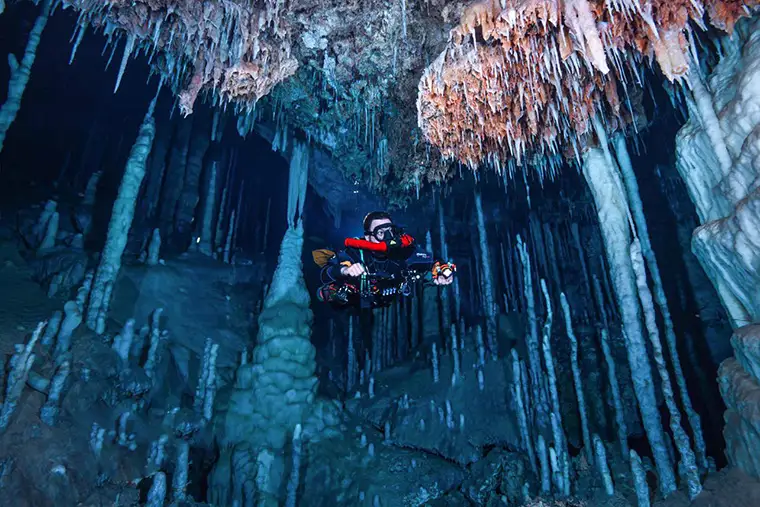
Gus: Earlier, I mentioned we didn’t have any sponsors, but we’re open to anyone—Rolex, Red Bull, Corona—bring it on! We started with a clear stance against industry sponsors to maintain our independence. We’ve received free products from companies impressed with our videos featuring their gear, and we’ve tested their latest versions too. But whenever we talk about a product, it’s because we genuinely use it and find it valuable, never for money. Of course, there’s nothing wrong with earning from YouTube—it’s a platform where diverse content can thrive. Look at those recovering bodies or exploring deep waters; they’re doing a service and making a living—good for them!
The biggest video I ever did featured Edd Sorenson on a body recovery mission in the Dominican Republic. It sparked intense discussion in the comments. People criticized Edd and Mike, questioning their motives and expenses. But supportive comments flooded in, defending their bravery and commitment. It’s fascinating how criticism flows from armchair pundits. We were guilty of it too, initially bashing products like Spare Air without testing them. So, we took action—dived to 32 m/105 ft in Blue Grotto, bailed out to a Spare Air, and proved its functionality firsthand. Instead of talking, we did it, and the results spoke for themselves. The product did not deliver what it was supposed to. But at least we tried it to find out for ourselves.
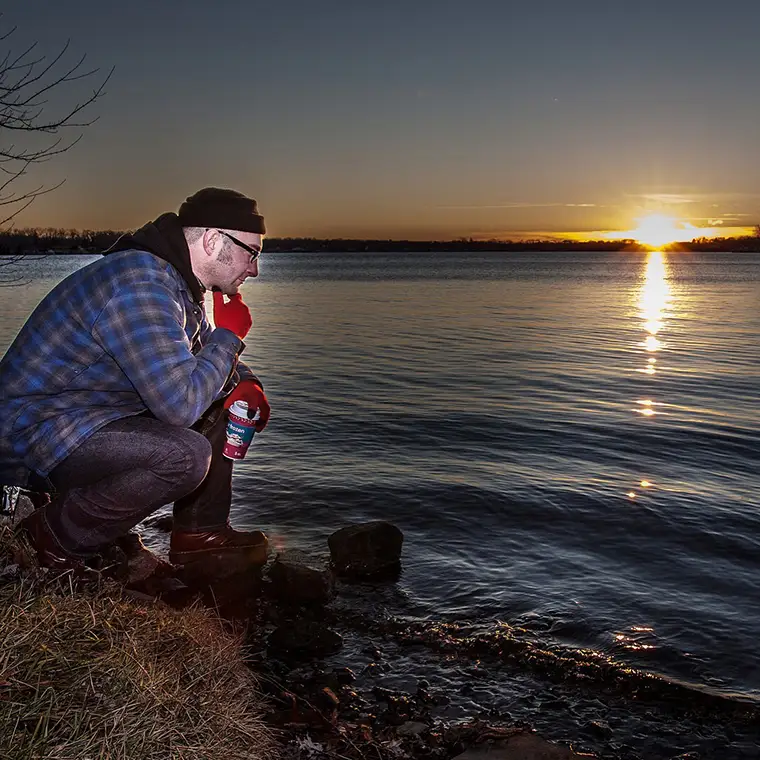
Yeah, well, not everything needs to be put to the test; some mysteries are fine as they are. But in this case, absolutely. I understand. Just to give my perspective, I don’t see anything wrong with being compensated for providing a service, whether it’s sharing information or reviewing a product, as long as it’s done transparently. You mentioned your show is partly possible thanks to xDEEP support, which is great. Making money by doing a good job—or any job—isn’t inherently bad; it’s just business.
Going back to what Gus said earlier, a lot of the issues we’ve discussed come down to jealousy. I bet those who criticize everything from recoveries in the Dominican Republic to product placements would jump at the chance to do the same—and conveniently forget they ever had an issue with it. That’s just human nature.
Guys, coming to an end here. Please share with me some of the most memorable feedback from the stories you’ve received from your listeners that highlight the impact of your podcast. Can you also share the best and worst moments you’ve experienced while creating this show, focusing on content this time.
Nick: Interestingly, one of the negative reviews I received earlier was about me laughing too much throughout my episodes. You can’t please everyone, right? On the positive side, I absolutely love it when listeners reach out just to say they enjoy the show. It’s rewarding to know that people are listening on their way to work or while planning their next dive trip. I always encourage people to reach out, and I make an effort to engage with our community because that’s what it’s all about for me. Also, one of the biggest highlights for me was being invited here today, Stratis. It’s been a pretty cool experience, so thank you for that.
No, thank you! You totally deserve to be here.
Gus: We often encourage people to give scuba diving a try, even if it’s just in a pool, and it’s amazing how many have taken that step and become passionate divers because of our show. Helping to grow an industry that many people may not have initially considered is definitely the coolest part for me. Most people think our industry is either aging or dying, with not many new entrants.
The worst part, though, is dealing with people who think we have some ulterior motive. A good example is what happened with Woody in Abaco, where he got bent and we had a less-than-stellar experience with DAN. We recorded a video about our disappointment with DAN’s response, and some people accused us of trying to destroy a beacon of the industry or having some hidden agenda.
In reality, we were just sharing our experience. We even met with them to discuss what happened and why, and then people said we sold out because we heard their explanation. It’s frustrating because you can’t make everyone happy, but the benefits of what we do far outweigh the negatives. Overall, it’s been very rewarding.
Steve: It’s been amazing to hear from people I’ve influenced to try sidemount or cave diving. On a deeper level, I’ve had a few listeners struggling with mental health who reached out to say that diving has significantly improved their condition. Knowing that our podcast can have such a positive impact is truly heartwarming.
One of my most memorable episodes was with Richard Harris, “Harry,” after the Thai cave rescue. There’s a quote at the beginning of Harry’s book from Rick Stanton: “Hey, Harry, you’re going to dive into the cave, you’re going to see the kids, they’re all happy and smiley. And then you’re going to dive out knowing they’re all going to die.” I paused after reading it, and Harry paused too. Leaving that moment of reflection in the episode made everything real for him and for the listeners. That episode blew me away and has been the best-performing one I’ve done.
On the negative side, I do take things personally sometimes. You’ll get a video with a ton of thumbs-up and then one or two thumbs-down, and you wonder, “What’s going on with those people? That’s my best work!” In terms of my own profile, it’s been incredibly positive. Patrick Widman once told me about Woody being surrounded by fans in Mexico. While it’s not quite like that for me, at least people know my name now. So that’s something.
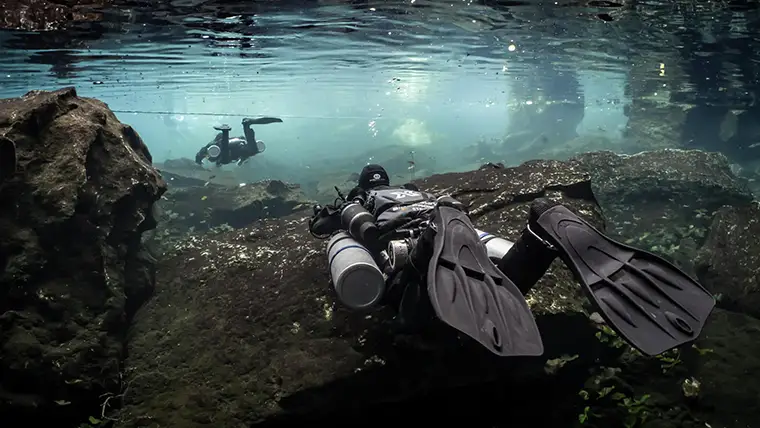
Yeah, you should wear pink.
Gus: I think that helps, for sure.
James: When I travel and dive, I often run into people who recognize me. It’s an incredible feeling. We receive emails from listeners sharing heartfelt stories about how the show saved or changed their lives and improved their diving. That feedback keeps the show going for us.
Of course, there are tough moments too. You get a one-star review or someone lays into you about a jokey comment. It’s frustrating when after all the effort you put in, people focus on such trivial things. We’ve been called out for laughing while talking about someone dying or for making a comment about a woman being attractive, which led to us being labeled misogynist pigs.
But then, you get those emails that hit you right in the heart, reminding you it’s all worth it—the good shows and the bad shows. It’s wild how unpredictable the audience can be. Sometimes, you pour your heart and soul into an episode, and it’s met with indifference. Other times, you throw something together last minute, and it blows up. That unpredictability makes it all fun for me in the end.
Great stuff. I’m going to take a moment to share something personal with all of you. Having you here, I want to thank each of you personally because without knowing it, you have also impacted my life, especially in the last couple of months. I had to deal with a severe injury on both of my shoulders, making diving complicated. I’m back now, but for three months, I had to endure multiple daily sessions of specific laying down therapy with alternating cold and warm patches. These sessions seemed never-ending.
During this tough time, I was fortunate to listen to episodes of your shows. I wondered what I would have done without them. I live and breathe diving, and couldn’t bring myself to listen to political podcasts or sports, which I don’t really follow. So, when I faced this challenge for the first time, I wondered how I would cope. But I just put on one of your podcasts and the hour flew by. Knowing that I had another session later, I didn’t dread it. Instead, I looked forward to finishing the episode I had started. So, thank you very much. This was very important to me.
Thank you all.
DIVE DEEPER
InDEPTH: The Talks: Cave Diving Nomads by Stratis Kas
InDEPTH: From Diver to Filmmaker: Carolin Negrin’s Underwonder Odyssey by Stratis Kas

Steve Davis
Steve is the producer and host of the acclaimed podcast, “Speaking Sidemount” and author of the books The Canterbury Wreck – A Diver’s Guide and Sidemount Fundamentals. He is a specialist sidemount diver/instructor and dives exclusively in sidemount in both open circuit and rebreather modes with the KISS Sidewinder. Steve is the principal instructor and founder of Sidemount Pros where he teaches open circuit Sidemount Fundamentals and Tech Sidemount courses. Steve travels the world diving sidemount in caves, wrecks, and open water. Through Speaking Sidemount, Steve’s mission is to share his passion for sidemount and cave diving and provide a medium for the world’s top sidemount and cave divers, instructors, and explorers to share their experiences and thoughts on sidemount and cave diving.
Links:
Instagram @nzsteved
YouTube @SidemountPros
https://www.facebook.com/sidemountpros
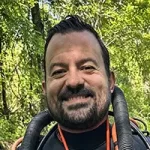
Gus Gonzalez
Gus Gonzalez is a CCR cave diver and the co-host of Dive Talk on YouTube.
Links: DiveTalk.com
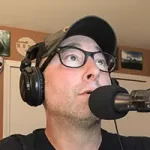
James Mott
James Mott is one of the 10 original instructors for UTD Scuba Diving, a DIR-based training agency that is committed to building thinking divers. A veteran of the Great Lakes area diving community and PADI instructor since 1998, he started working at Don’s Dive Shop in 1991 and co-founded Sea The World Scuba Center in 1996. Although he has an honest interest in all things underwater big or small, James’s heart lies beneath the cold waters of the Great Lakes along with the shipwrecks that he loves diving. Passionate about educating the diving community and sharing an underwater philosophical base, James’s instruction provides infinite possibilities and extends attainable excellence to all divers willing to reexamine their underwater behavior.
Links:
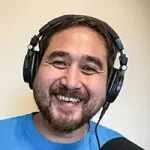
Nick Ramsay Hogle
Nick’s first encounter with the underwater world happened while backpacking through Thailand in 2016. He walked into a dive shop, and after some convincing words, found himself in a pool running through dive skills. Before he knew it, he was on a boat and submerged underwater, feeling like he had arrived in Avatar’s Pandora. Post-dive, he enjoyed beers, great conversation, and a meal prepared by a local, feeling that he had found his community.
Today, Nick holds instructor certifications with PADI and SDI. Despite not teaching as much as he would like due to his day job, he is always pursuing different courses to gain knowledge from experts. When his job took him to a part of Malaysia where he couldn’t dive as much, Nick started a podcast to continue conversations, connect with the community, and share stories of the diverse characters in the diving world. Tune in and enjoy.
Links:
Instagram: https://www.instagram.com/offgassingscubapodcast/
Off Gassing Facebook Group: https://www.facebook.com/groups/814882646726565
Website: https://www.offgassingscuba.com/podcast
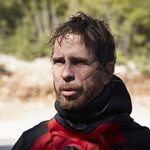
Stratis Kas, a Greek-Italian professional diving instructor, photographer, film director, and author, has spent over a decade as an esteemed Advanced Cave instructor, leading expeditions to extreme locations worldwide. His impressive diving achievements have solidified his expertise in the field. In 2020, Kas published the influential book Close Calls, followed by his highly acclaimed second book, CAVE DIVING: Everything You Always Wanted to Know, released in 2023. Accessible on stratiskas.com, this comprehensive guide has become a go-to resource for cave diving enthusiasts. Kas’s directorial ventures include the documentary “Amphitrite” (2017), shortlisted for the Short to the Point Film Festival, and “Infinite Liquid” (2019), which explores Greece’s uncharted cave diving destinations and was selected for presentation at Tekdive USA. Kas’s expertise has led to invitations as a speaker at prestigious conferences including Eurotek UK, Tekdive Europe and USA, Tec Expo, and Euditek. For more information about his work and publications, visit stratiskas.com.

